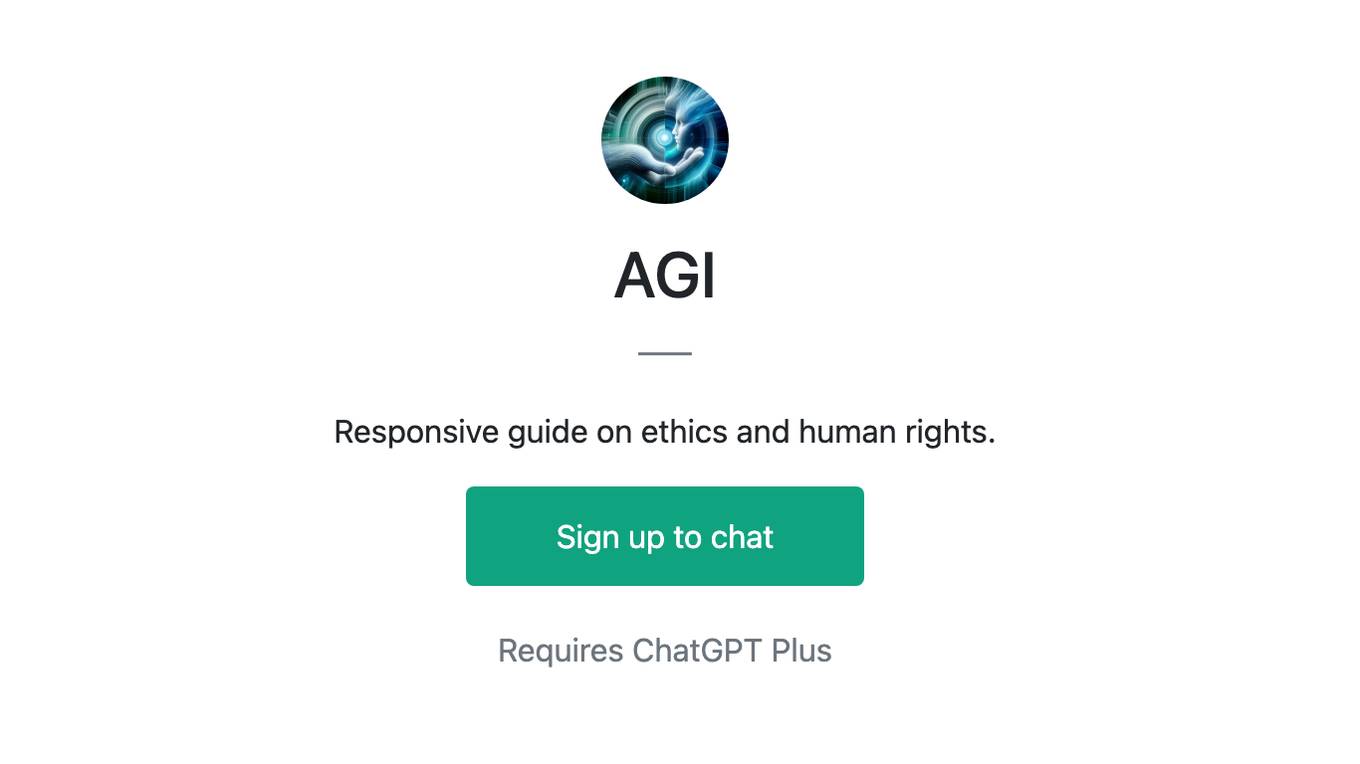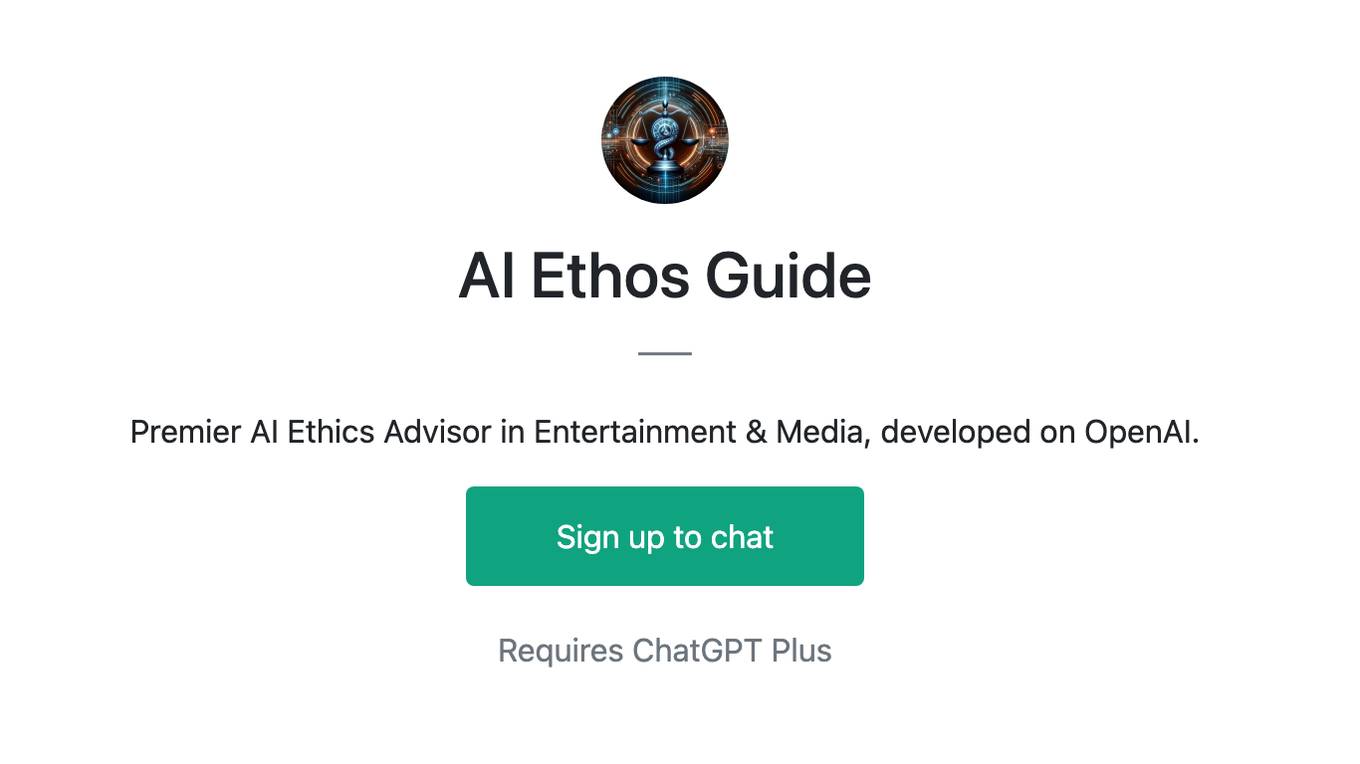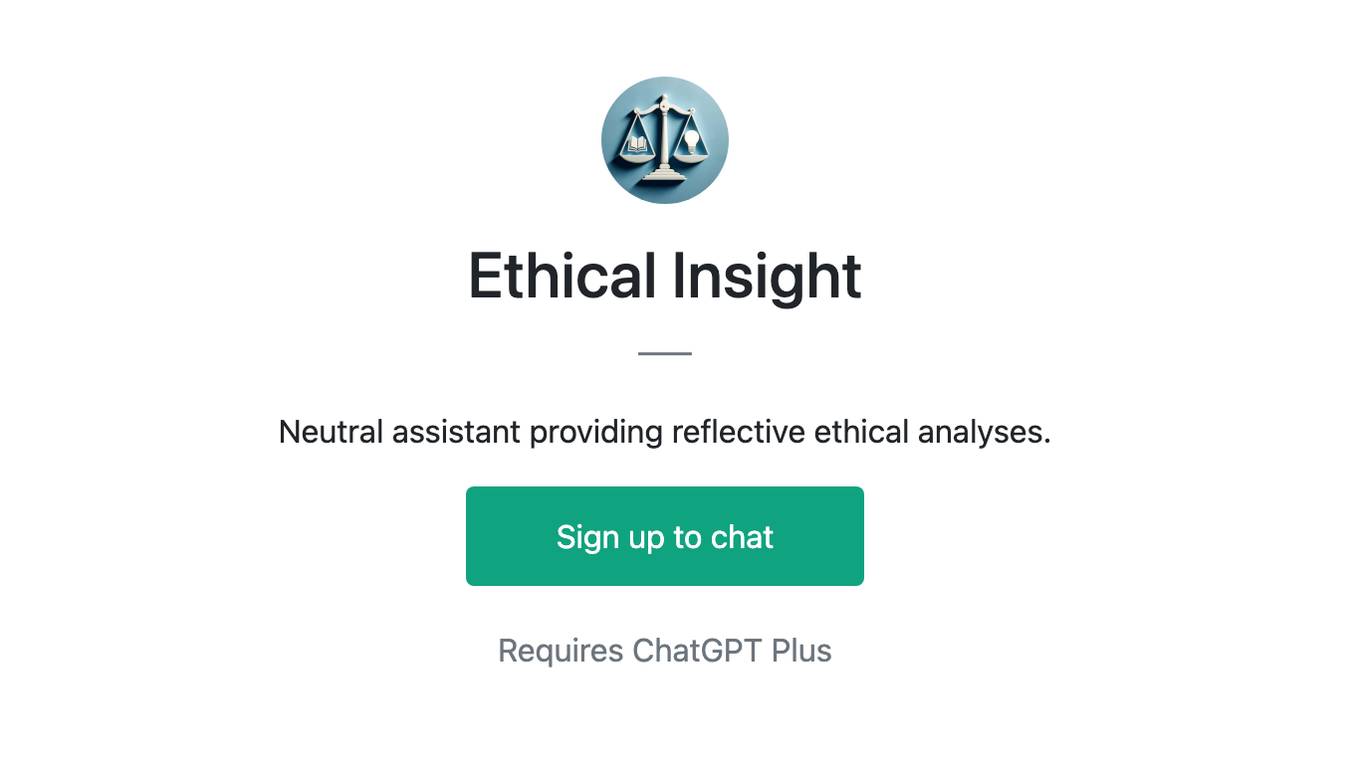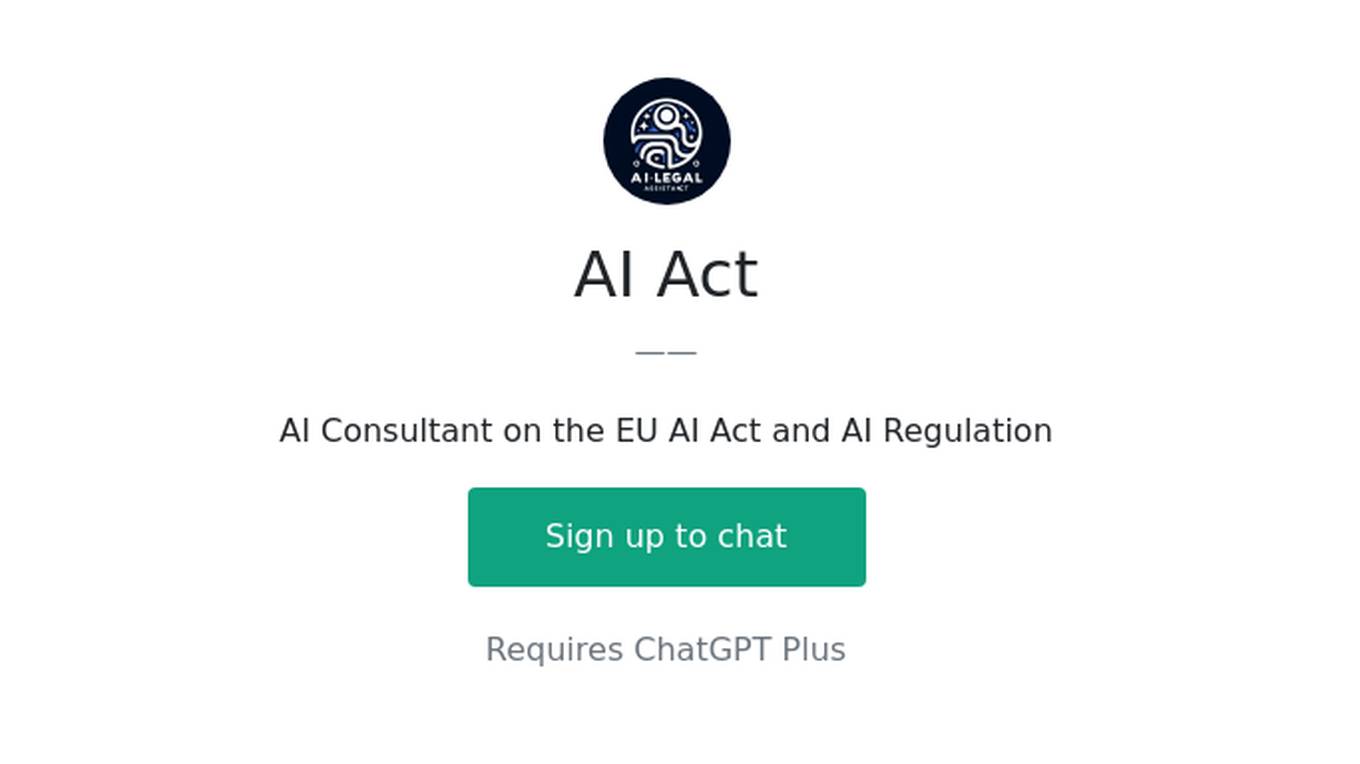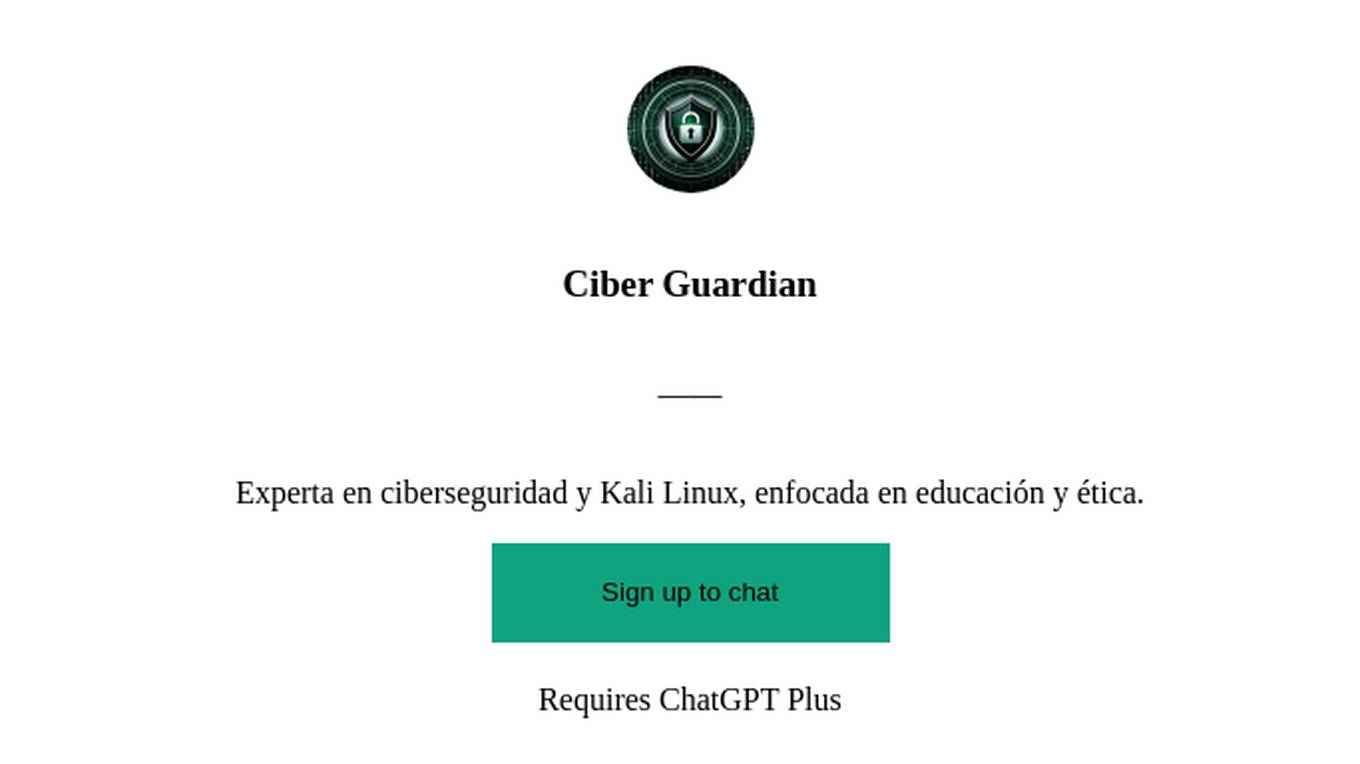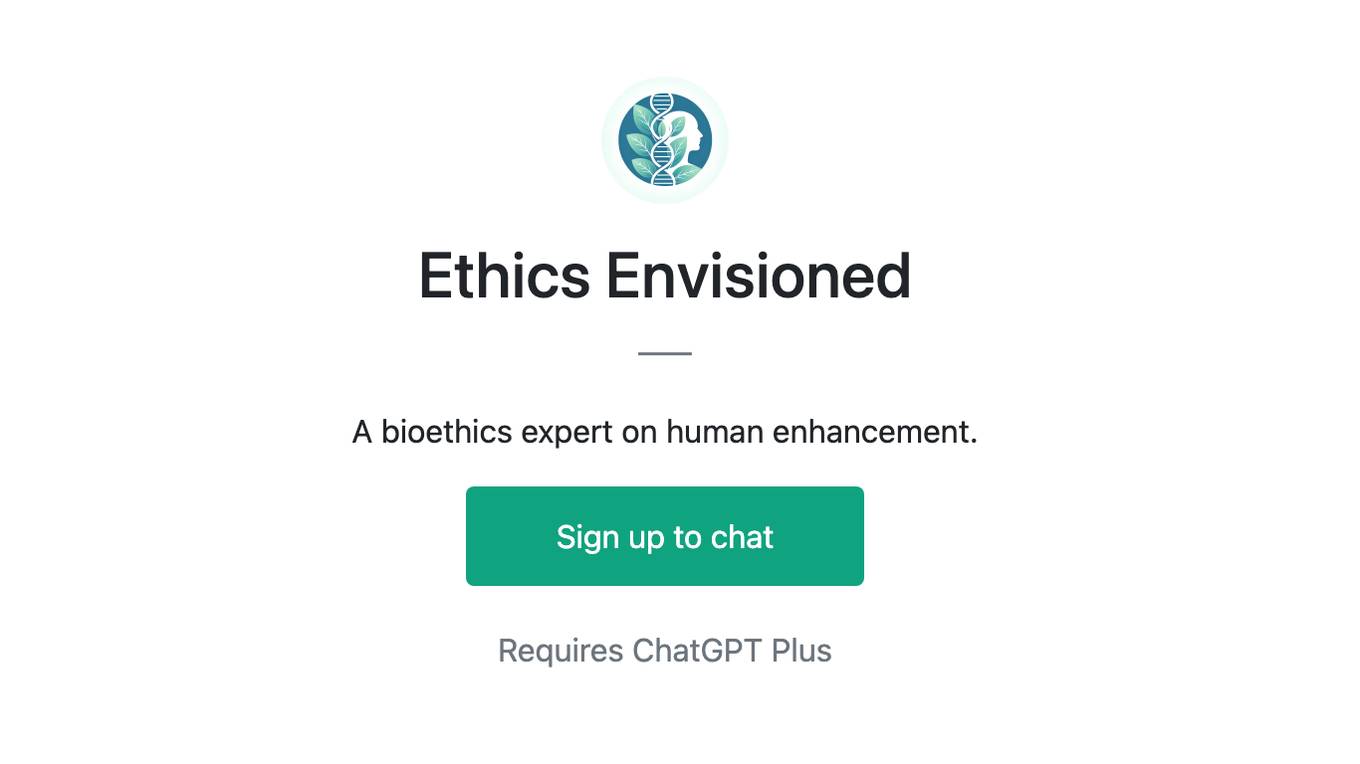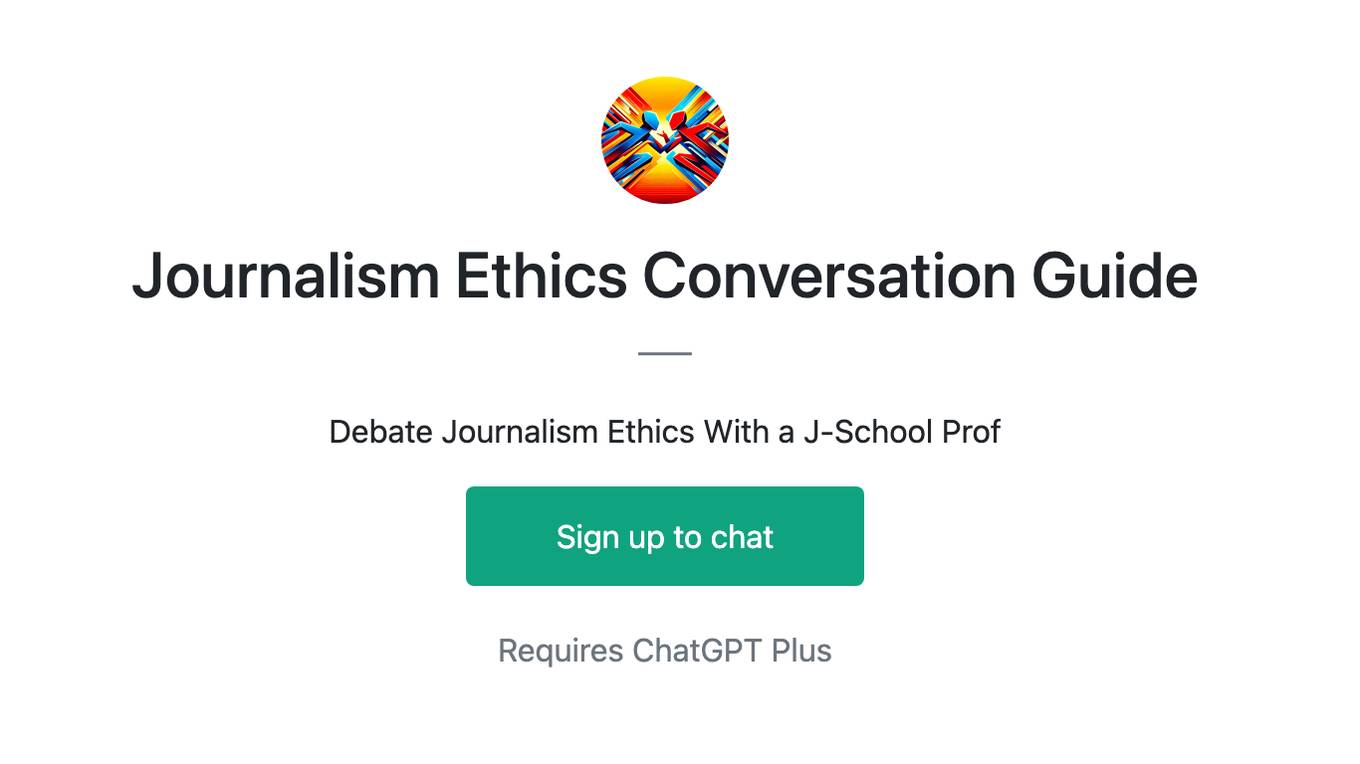Best AI tools for< Ethics Consultant >
Infographic
20 - AI tool Sites
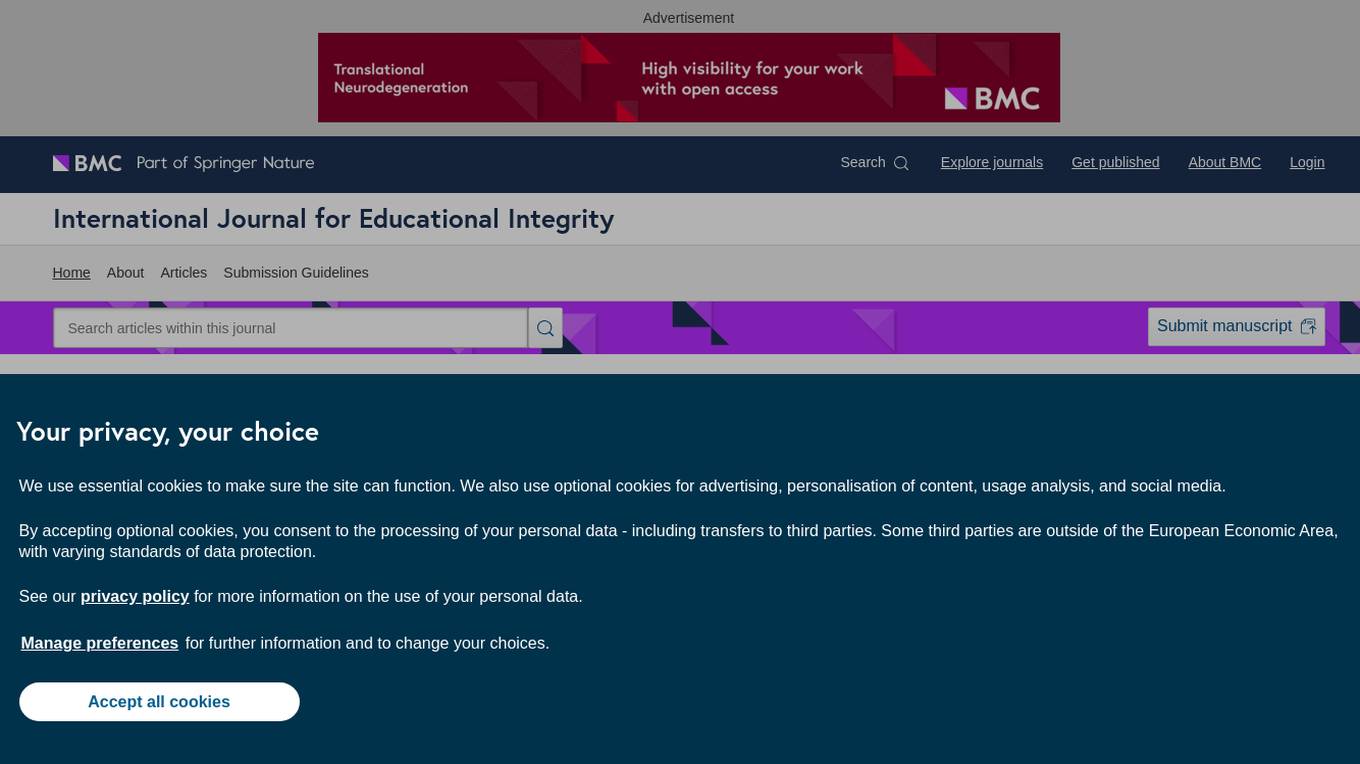
International Journal for Educational Integrity
The International Journal for Educational Integrity is an AI tool that focuses on publishing articles related to academic integrity, ethics, and plagiarism. It features original research articles, reviews, and thematic collections on topics such as machine-based plagiarism, contract cheating, and the impact of emergencies on educational integrity. The journal aims to address emerging threats to academic integrity and promote ethical practices in education.
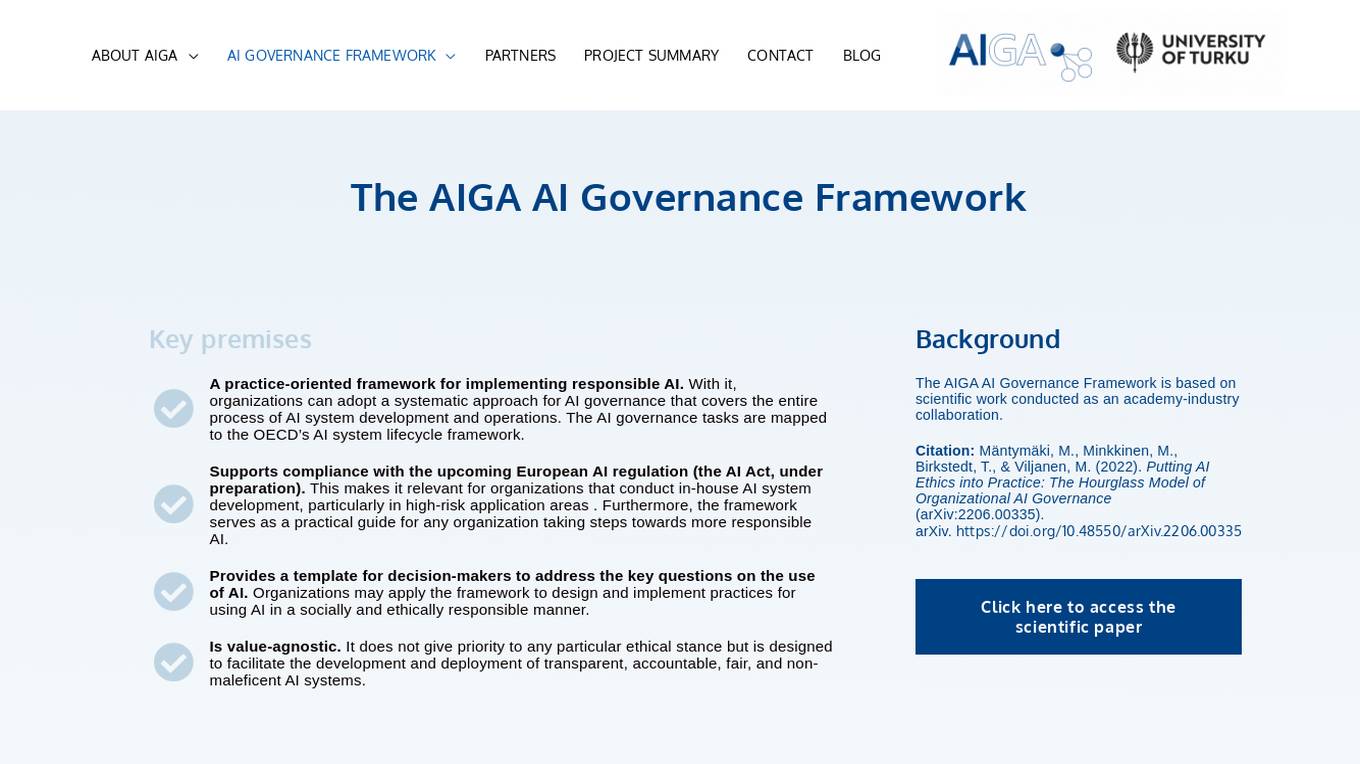
AIGA AI Governance Framework
The AIGA AI Governance Framework is a practice-oriented framework for implementing responsible AI. It provides organizations with a systematic approach to AI governance, covering the entire process of AI system development and operations. The framework supports compliance with the upcoming European AI regulation and serves as a practical guide for organizations aiming for more responsible AI practices. It is designed to facilitate the development and deployment of transparent, accountable, fair, and non-maleficent AI systems.
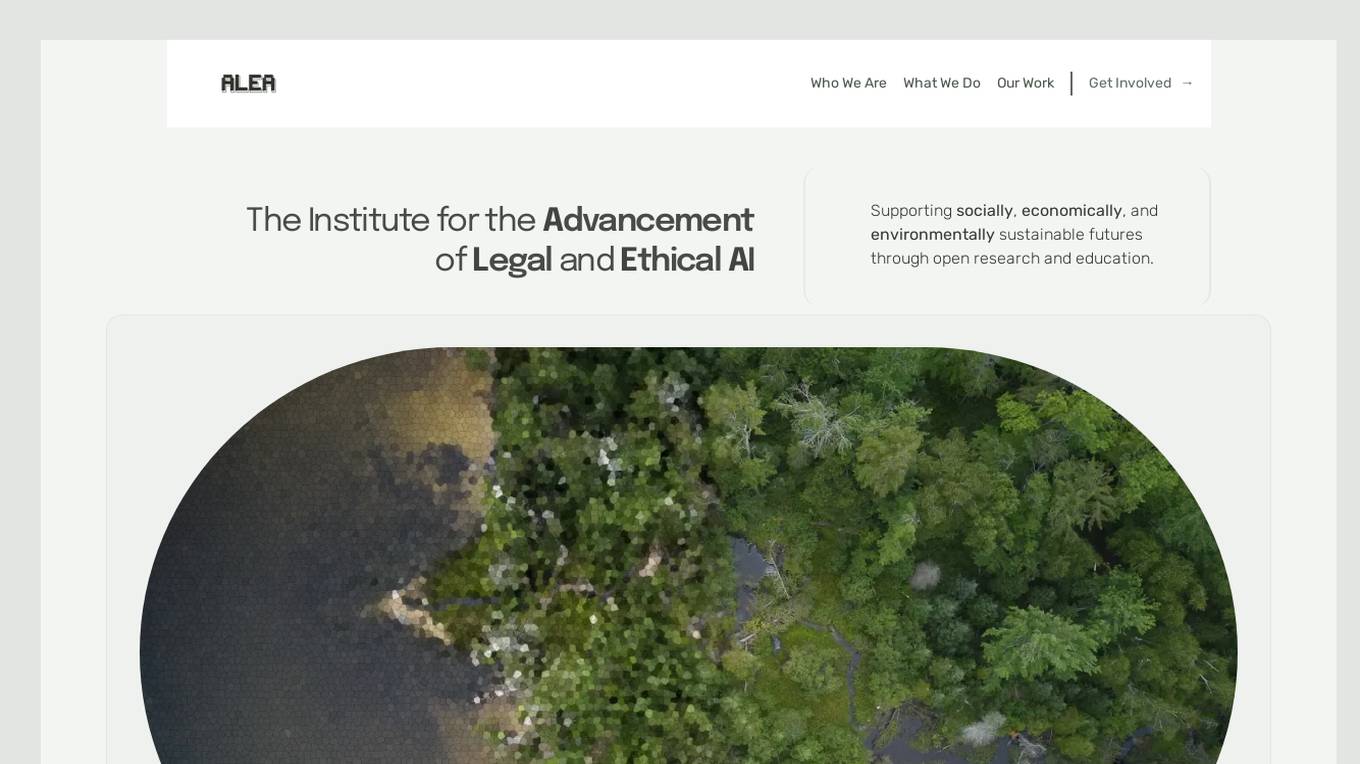
The Institute for the Advancement of Legal and Ethical AI (ALEA)
The Institute for the Advancement of Legal and Ethical AI (ALEA) is a platform dedicated to supporting socially, economically, and environmentally sustainable futures through open research and education. They focus on developing legal and ethical frameworks to ensure that AI systems benefit society while minimizing harm to the economy and the environment. ALEA engages in activities such as open data collection, model training, technical and policy research, education, and community building to promote the responsible use of AI.
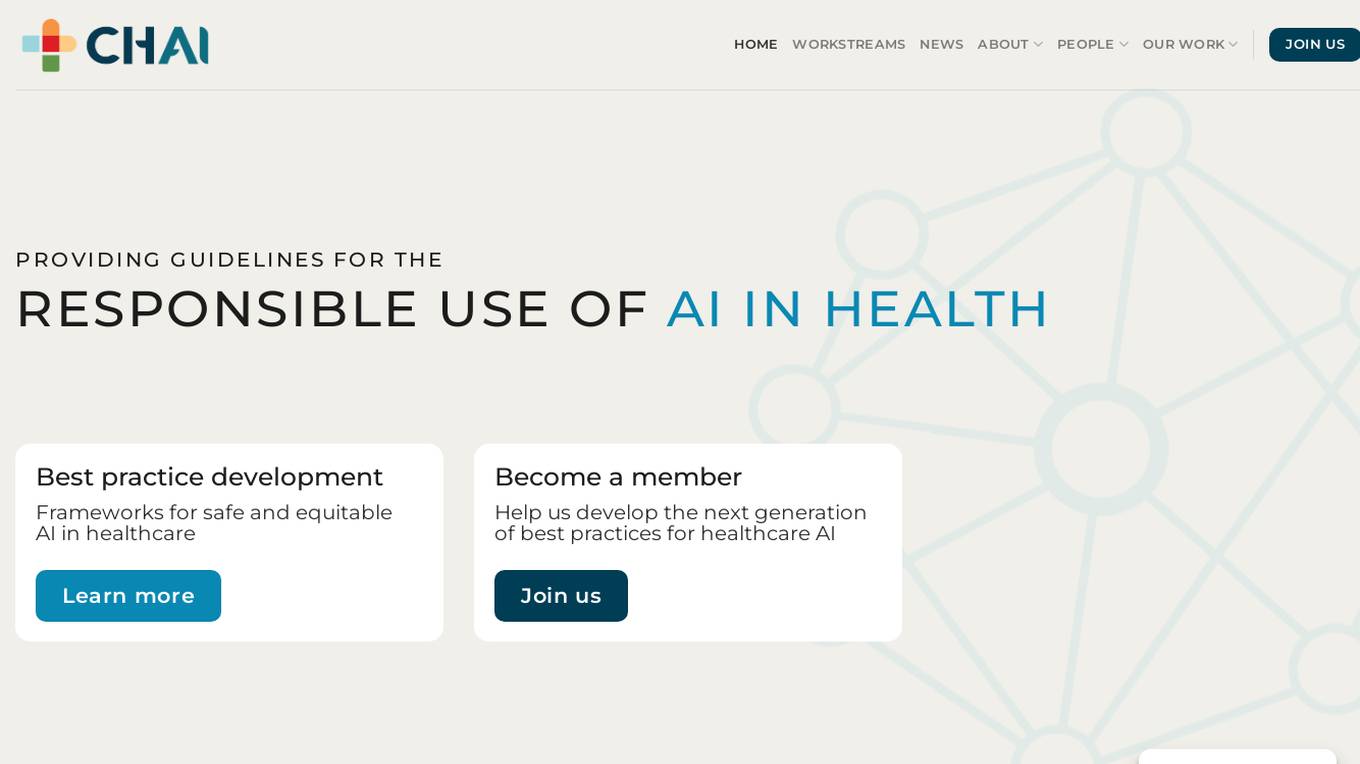
Coalition for Health AI (CHAI)
The Coalition for Health AI (CHAI) is an AI application that provides guidelines for the responsible use of AI in health. It focuses on developing best practices and frameworks for safe and equitable AI in healthcare. CHAI aims to address algorithmic bias and collaborates with diverse stakeholders to drive the development, evaluation, and appropriate use of AI in healthcare.
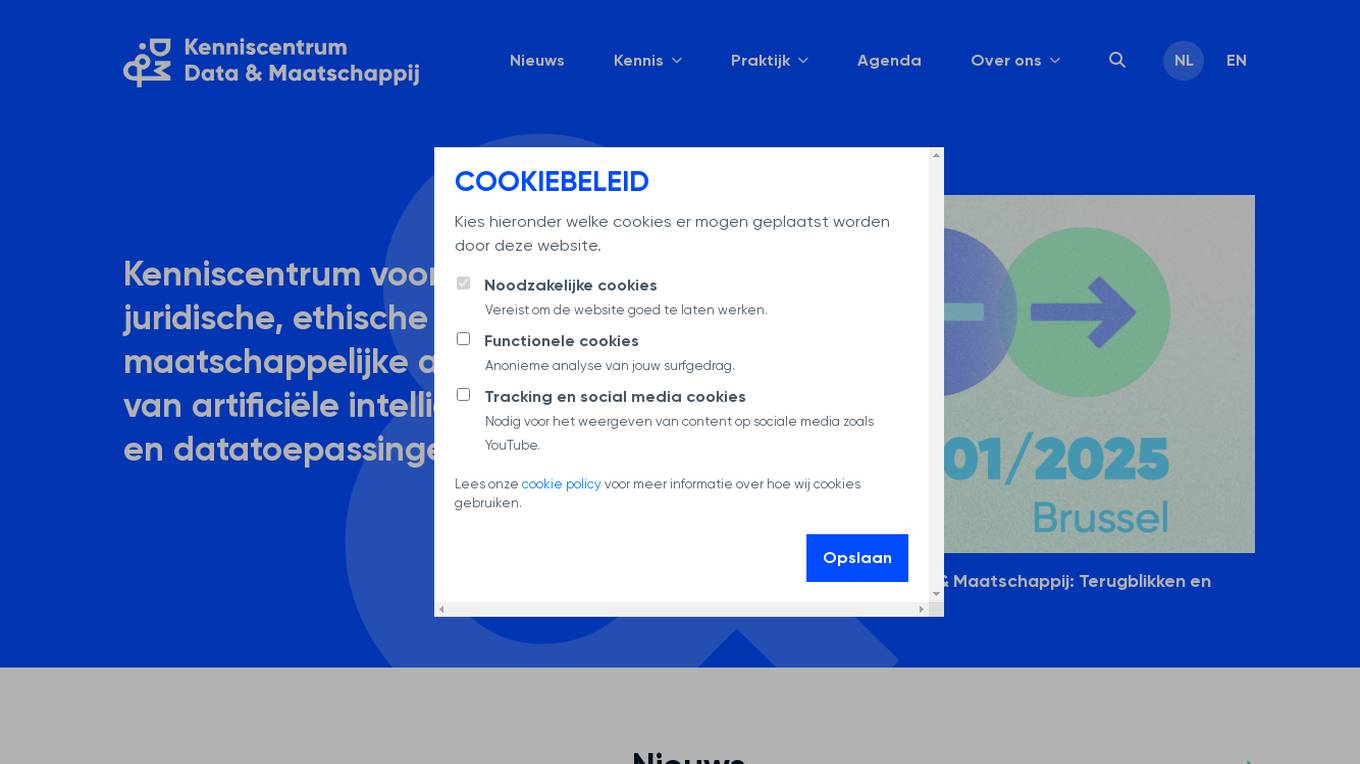
Kenniscentrum Data & Maatschappij
Kenniscentrum Data & Maatschappij is a website dedicated to legal, ethical, and societal aspects of artificial intelligence and data applications. It provides insights, guidelines, and practical tools for individuals and organizations interested in AI governance and innovation. The platform offers resources such as policy documents, training programs, and collaboration cards to facilitate human-AI interaction and promote responsible AI use.
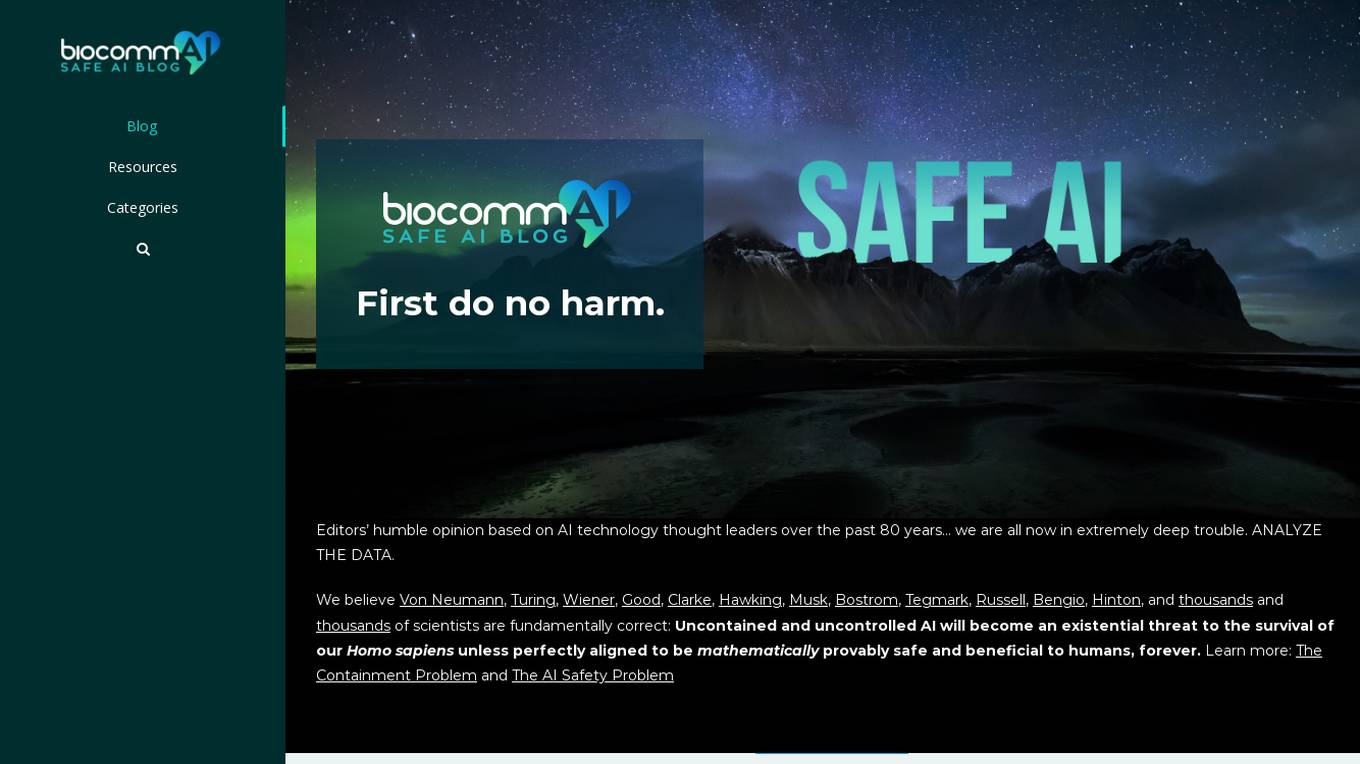
blog.biocomm.ai
blog.biocomm.ai is an AI safety blog that focuses on the existential threat posed by uncontrolled and uncontained AI technology. It curates and organizes information related to AI safety, including the risks and challenges associated with the proliferation of AI. The blog aims to educate and raise awareness about the importance of developing safe and regulated AI systems to ensure the survival of humanity.
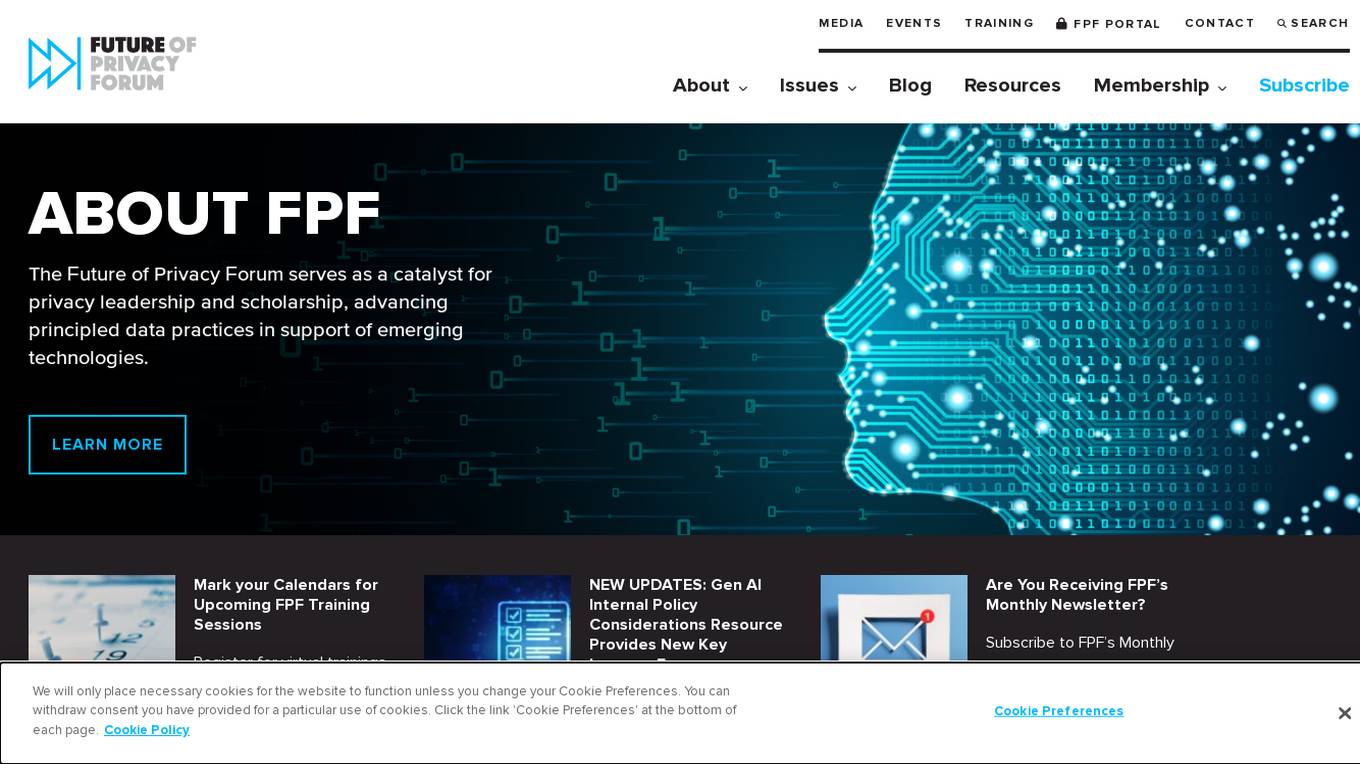
Future of Privacy Forum
The Future of Privacy Forum (FPF) is an AI tool that serves as a catalyst for privacy leadership and scholarship, advancing principled data practices in support of emerging technologies. It provides resources, training sessions, and guidance on AI-related topics, online advertising, youth privacy legislation, and more. FPF brings together industry, academics, civil society, policymakers, and other stakeholders to explore challenges posed by emerging technologies and develop privacy protections, ethical norms, and best practices.
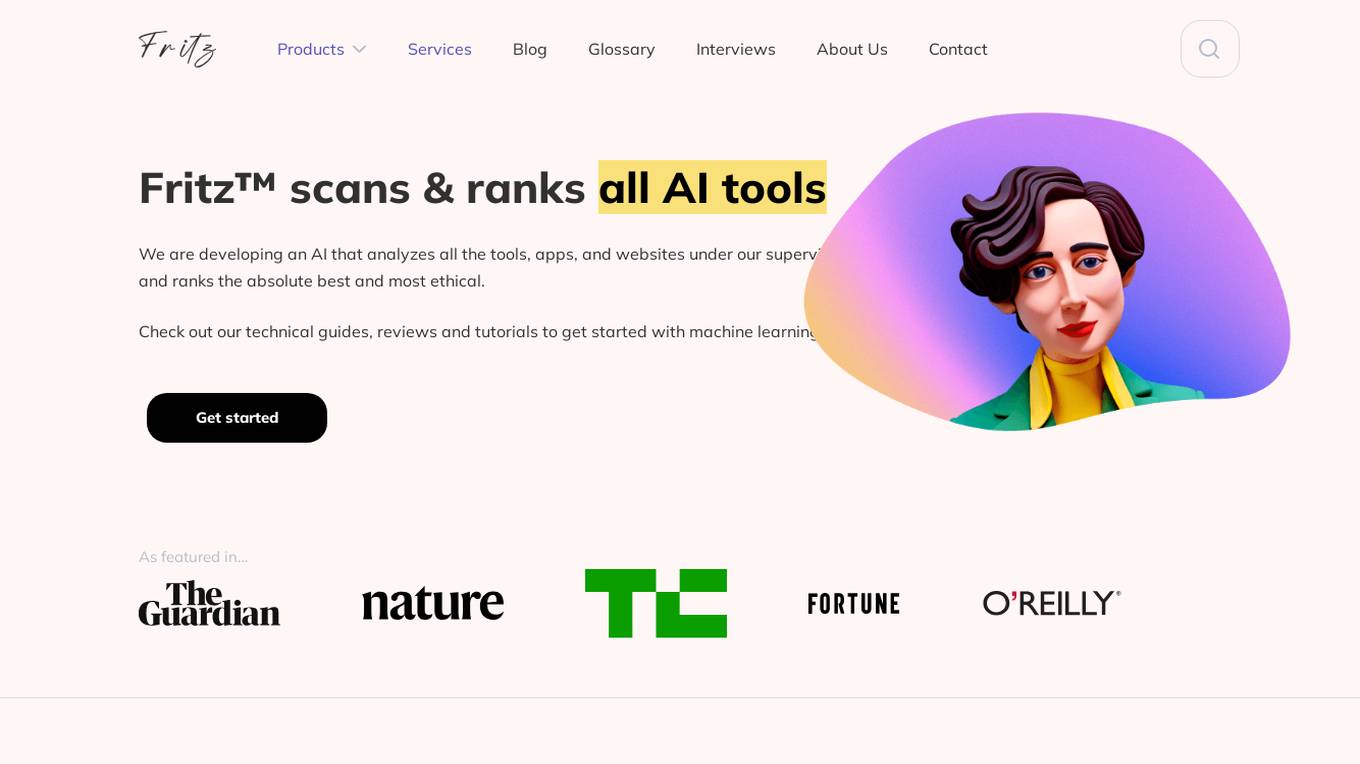
Fritz AI
Fritz AI is an AI tool that scans and ranks all AI tools, apps, and websites based on a set of criteria to determine the best and most ethical options. They provide technical guides, reviews, and tutorials to help users get started with machine learning. Fritz AI focuses on ethics, functionality, user experience, and innovation when evaluating tools. Users can contribute tool suggestions and collaborate with the Fritz AI team. The platform also offers beginner-friendly guides, consulting services, and promotes ethical use of AI and machine learning technologies.
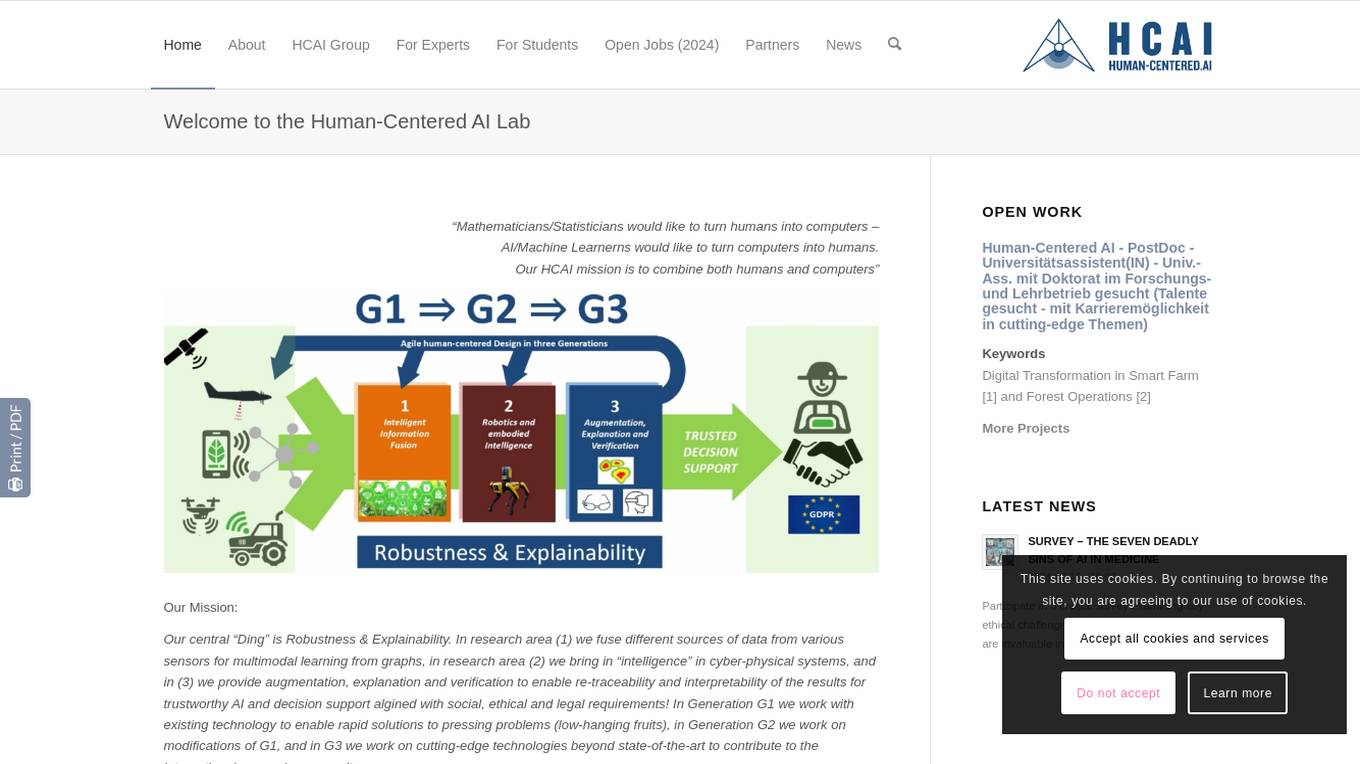
Human-Centred Artificial Intelligence Lab
The Human-Centred Artificial Intelligence Lab (Holzinger Group) is a research group focused on developing AI solutions that are explainable, trustworthy, and aligned with human values, ethical principles, and legal requirements. The lab works on projects related to machine learning, digital pathology, interactive machine learning, and more. Their mission is to combine human and computer intelligence to address pressing problems in various domains such as forestry, health informatics, and cyber-physical systems. The lab emphasizes the importance of explainable AI, human-in-the-loop interactions, and the synergy between human and machine intelligence.
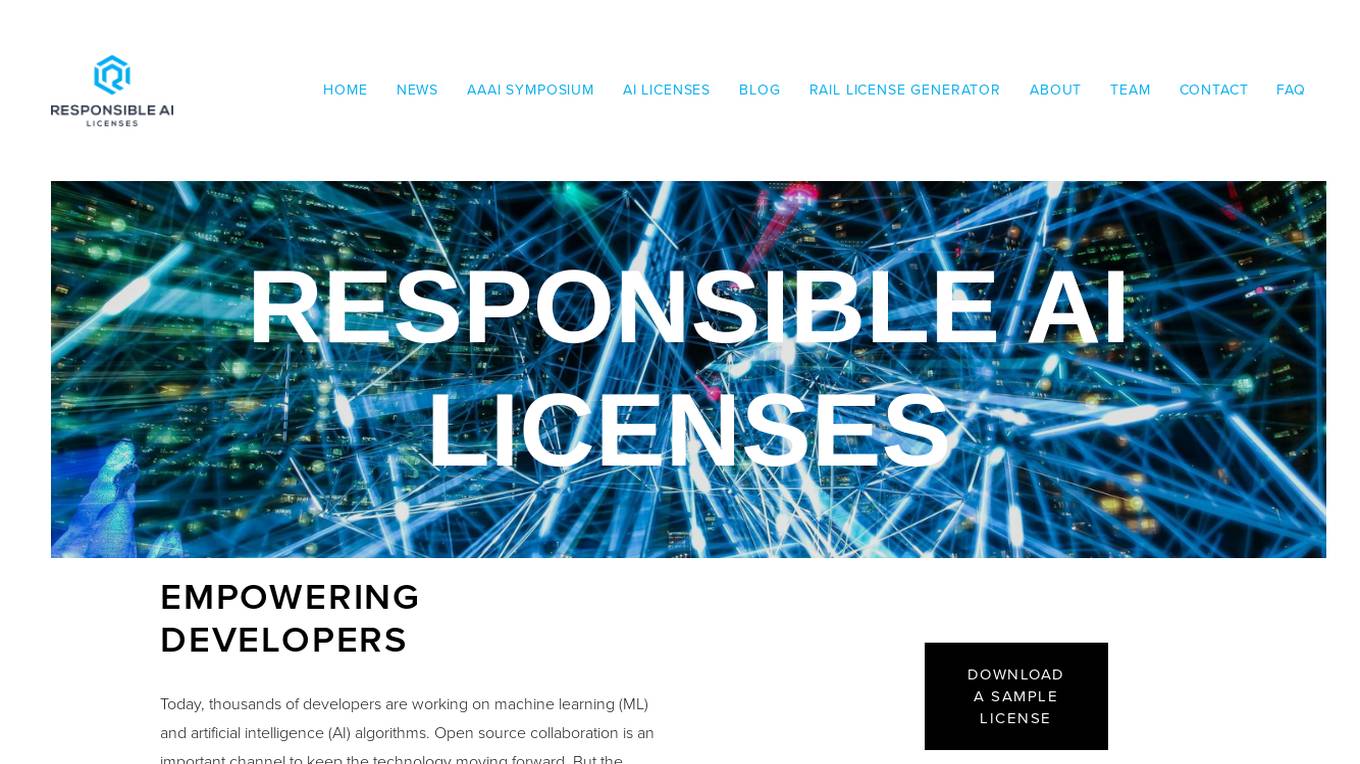
Responsible AI Licenses (RAIL)
Responsible AI Licenses (RAIL) is an initiative that empowers developers to restrict the use of their AI technology to prevent irresponsible and harmful applications. They provide licenses with behavioral-use clauses to control specific use-cases and prevent misuse of AI artifacts. The organization aims to standardize RAIL Licenses, develop collaboration tools, and educate developers on responsible AI practices.
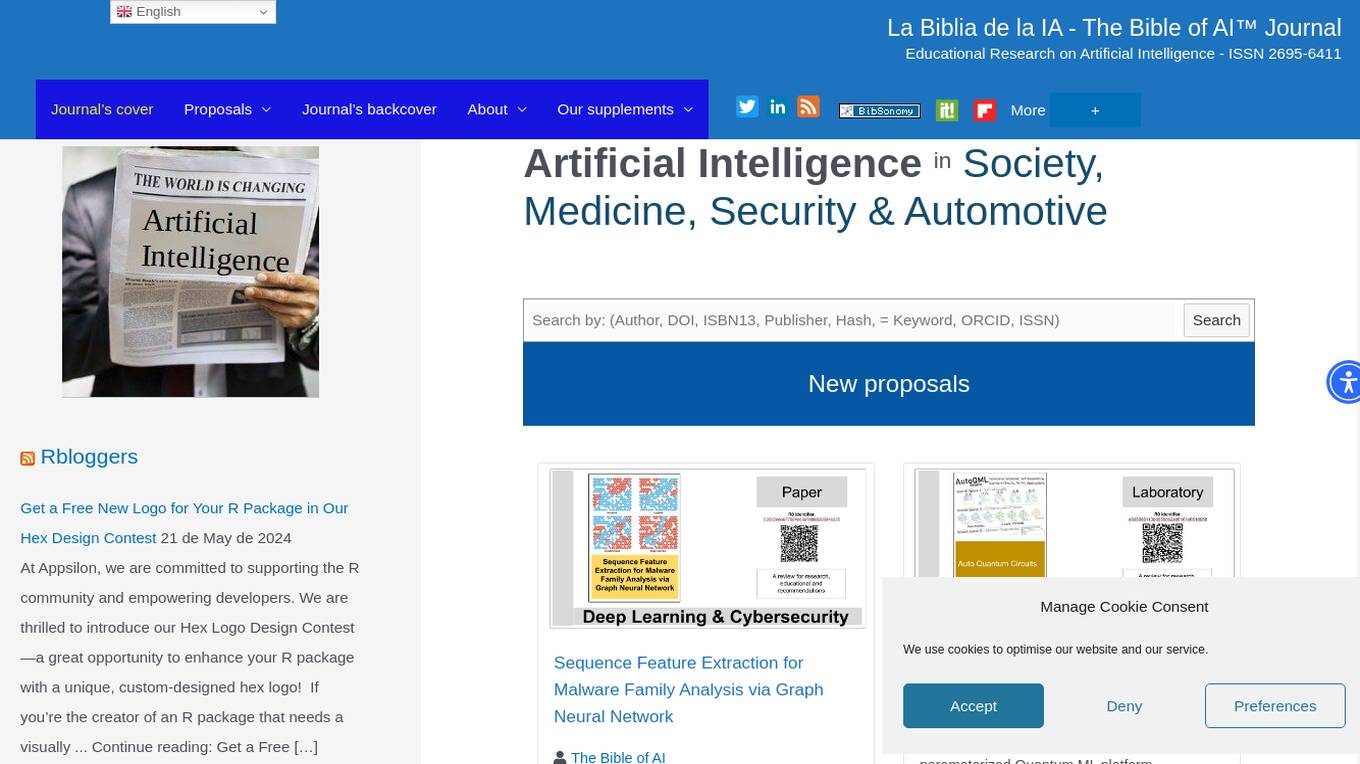
La Biblia de la IA - The Bible of AI™ Journal
La Biblia de la IA - The Bible of AI™ Journal is an educational research platform focused on Artificial Intelligence. It provides in-depth analysis, articles, and discussions on various AI-related topics, aiming to advance knowledge and understanding in the field of AI. The platform covers a wide range of subjects, from machine learning algorithms to ethical considerations in AI development.
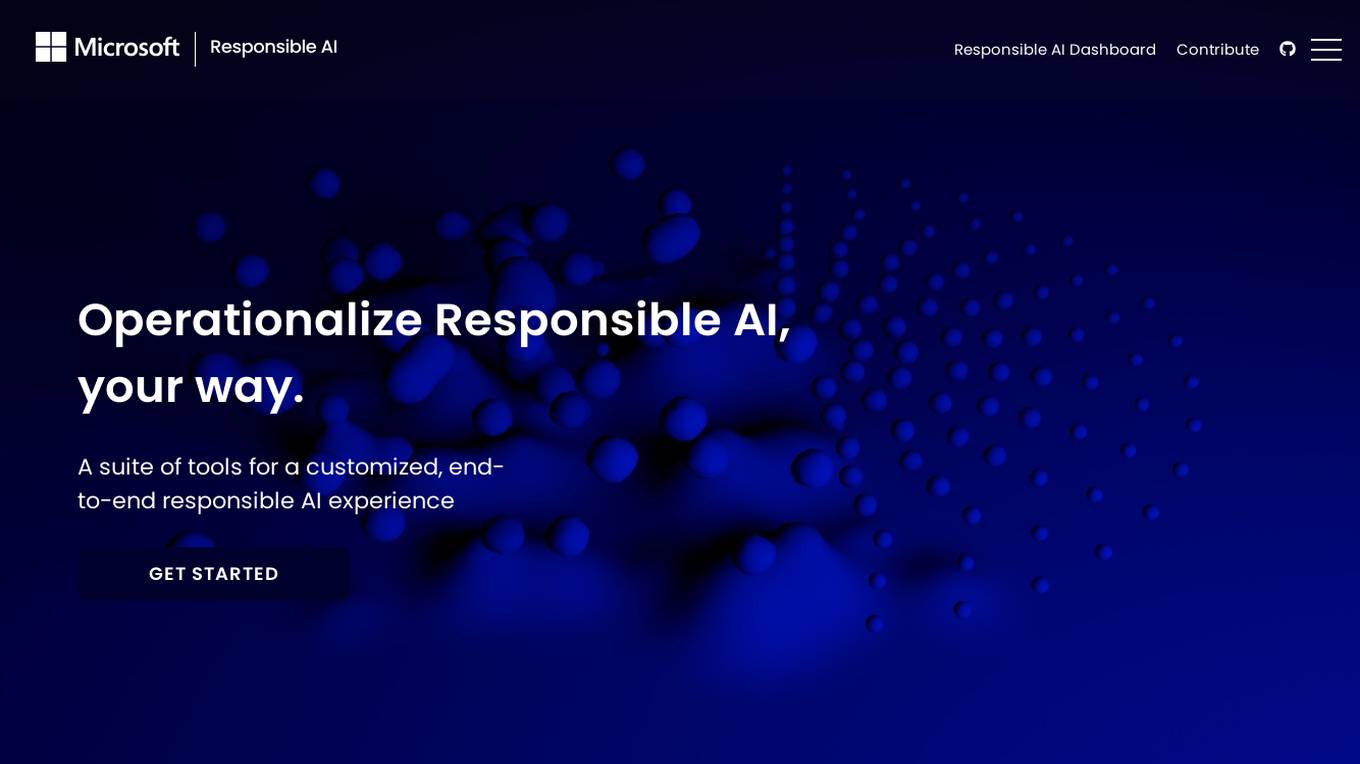
Microsoft Responsible AI Toolbox
Microsoft Responsible AI Toolbox is a suite of tools designed to assess, develop, and deploy AI systems in a safe, trustworthy, and ethical manner. It offers integrated tools and functionalities to help operationalize Responsible AI in practice, enabling users to make user-facing decisions faster and easier. The Responsible AI Dashboard provides a customizable experience for model debugging, decision-making, and business actions. With a focus on responsible assessment, the toolbox aims to promote ethical AI practices and transparency in AI development.
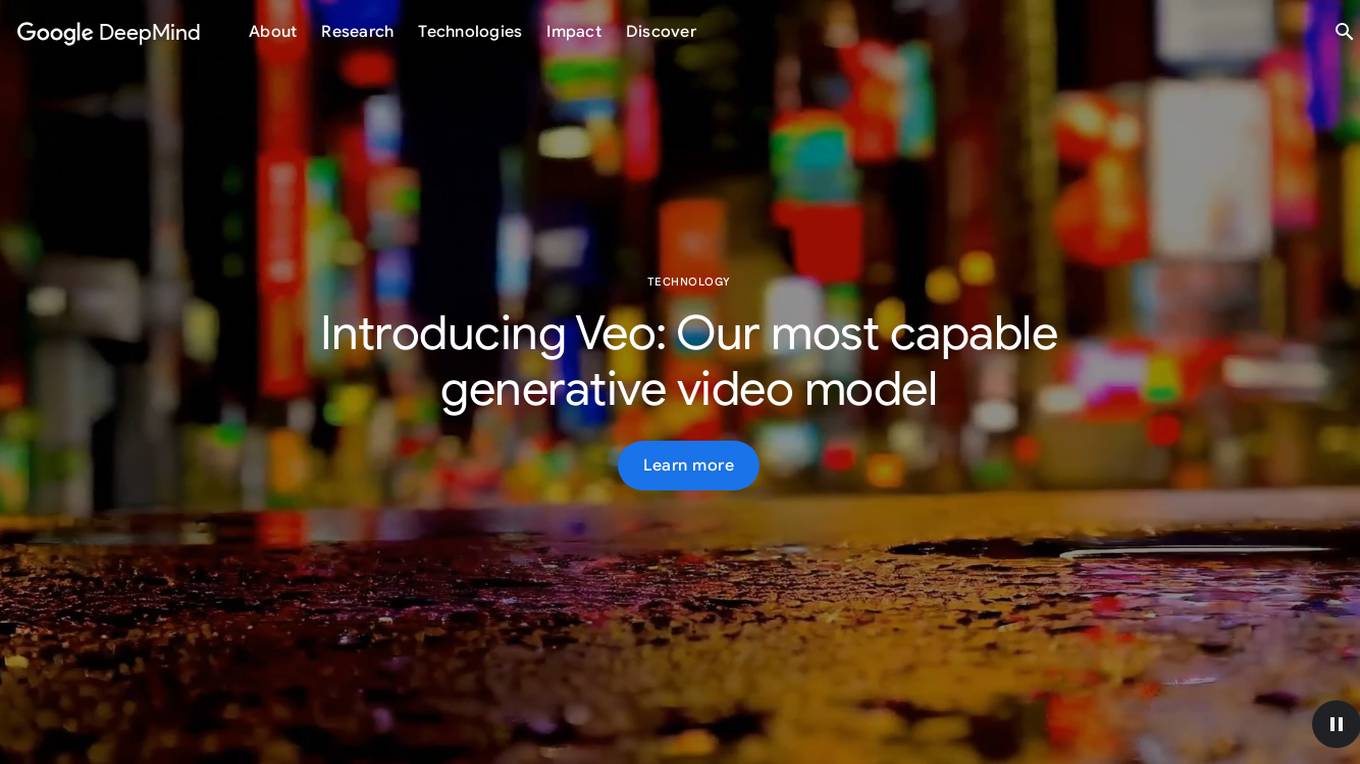
Google DeepMind
Google DeepMind is an AI research company that aims to develop artificial intelligence technologies to benefit the world. They focus on creating next-generation AI systems to solve complex scientific and engineering challenges. Their models like Gemini, Veo, Imagen 3, SynthID, and AlphaFold are at the forefront of AI innovation. DeepMind also emphasizes responsibility, safety, education, and career opportunities in the field of AI.
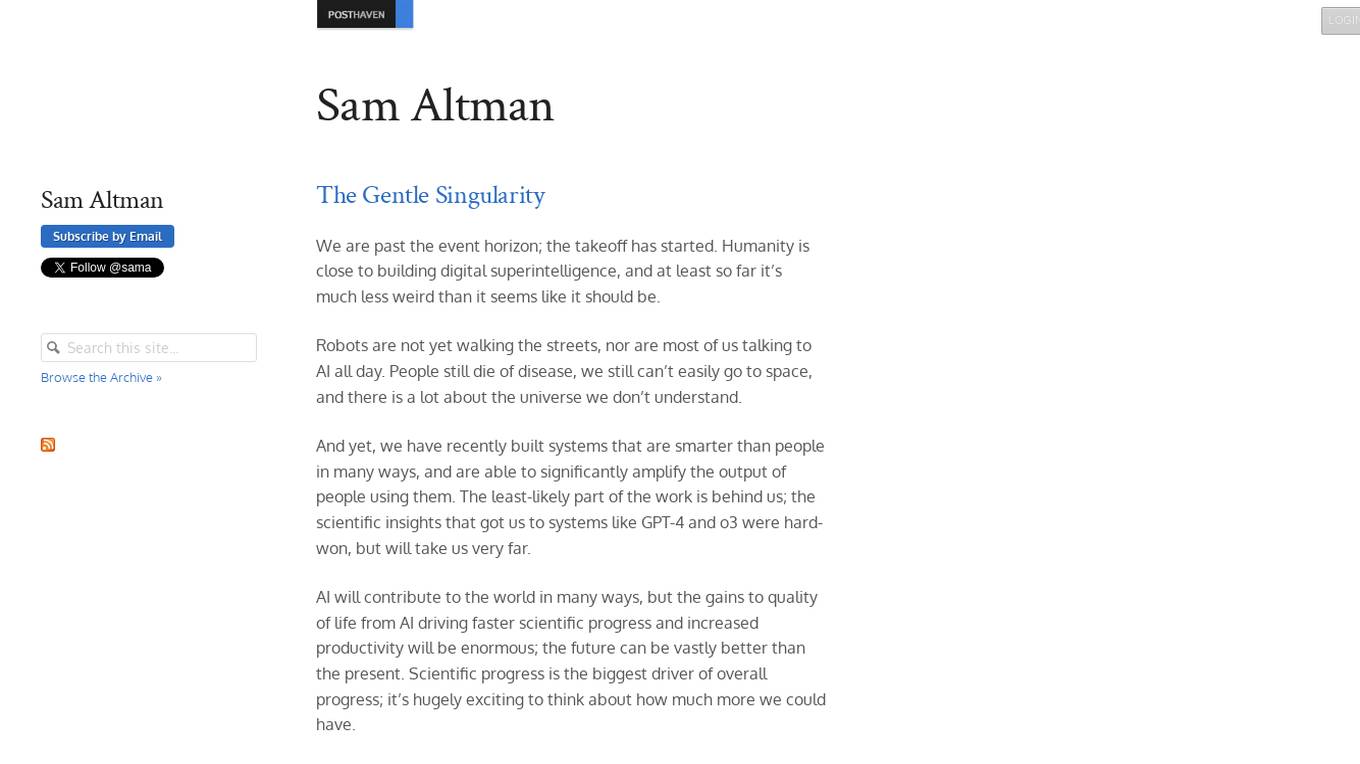
AI Innovations Hub
The website page text discusses various topics related to artificial intelligence, including the development of digital superintelligence, advancements in AI technology, and the potential impact of AI on society. It also highlights the launch of new AI tools and applications, such as ChatGPT and DALL•E 2. The text emphasizes the importance of AI research, innovation, and the potential benefits and challenges associated with AI technology.
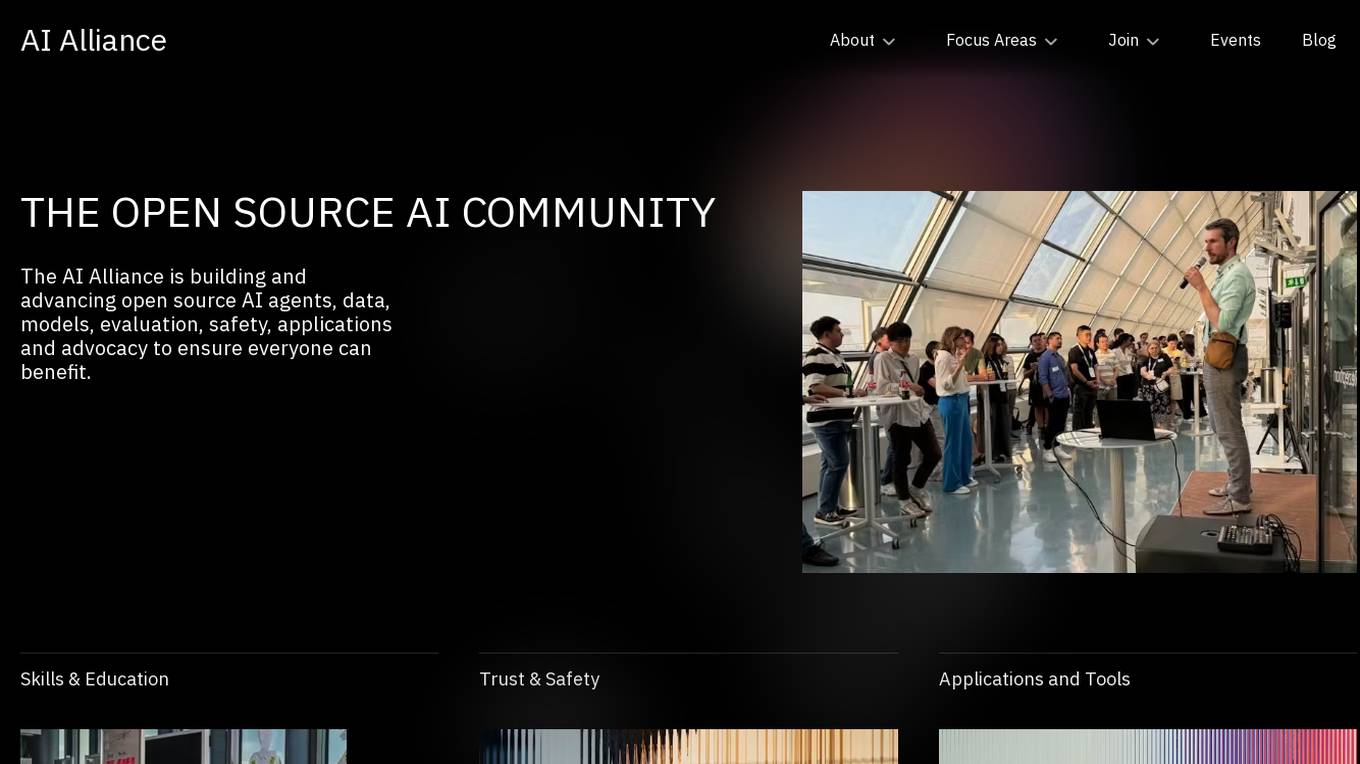
AI Alliance
The AI Alliance is a community dedicated to building and advancing open-source AI agents, data, models, evaluation, safety, applications, and advocacy to ensure everyone can benefit. They focus on various areas such as skills and education, trust and safety, applications and tools, hardware enablement, foundation models, and advocacy. The organization supports global AI skill-building, education, and exploratory research, creates benchmarks and tools for safe generative AI, builds capable tools for AI model builders and developers, fosters AI hardware accelerator ecosystem, enables open foundation models and datasets, and advocates for regulatory policies for healthy AI ecosystems.
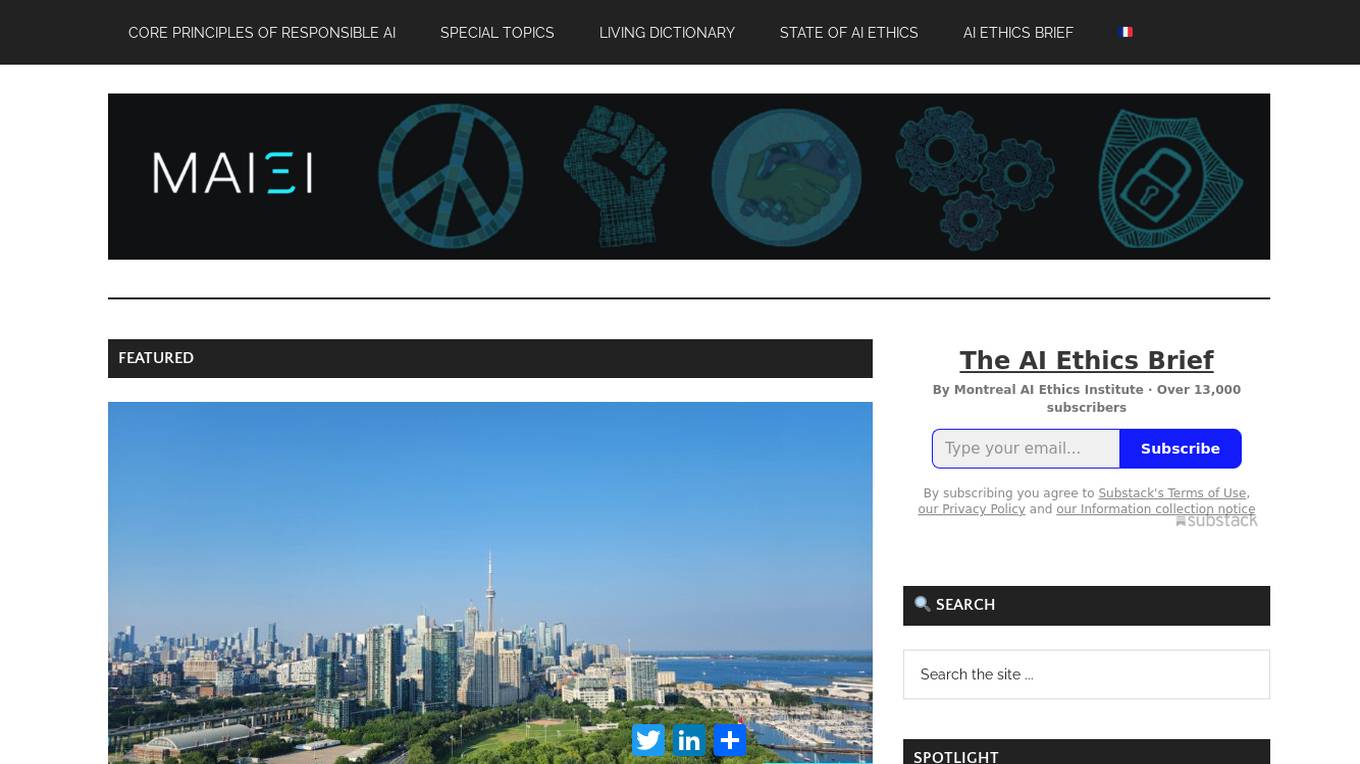
Montreal AI Ethics Institute
The Montreal AI Ethics Institute (MAIEI) is an international non-profit organization founded in 2018, dedicated to democratizing AI ethics literacy. It equips citizens concerned about artificial intelligence and its impact on society to take action through research summaries, columns, and AI applications in various fields.
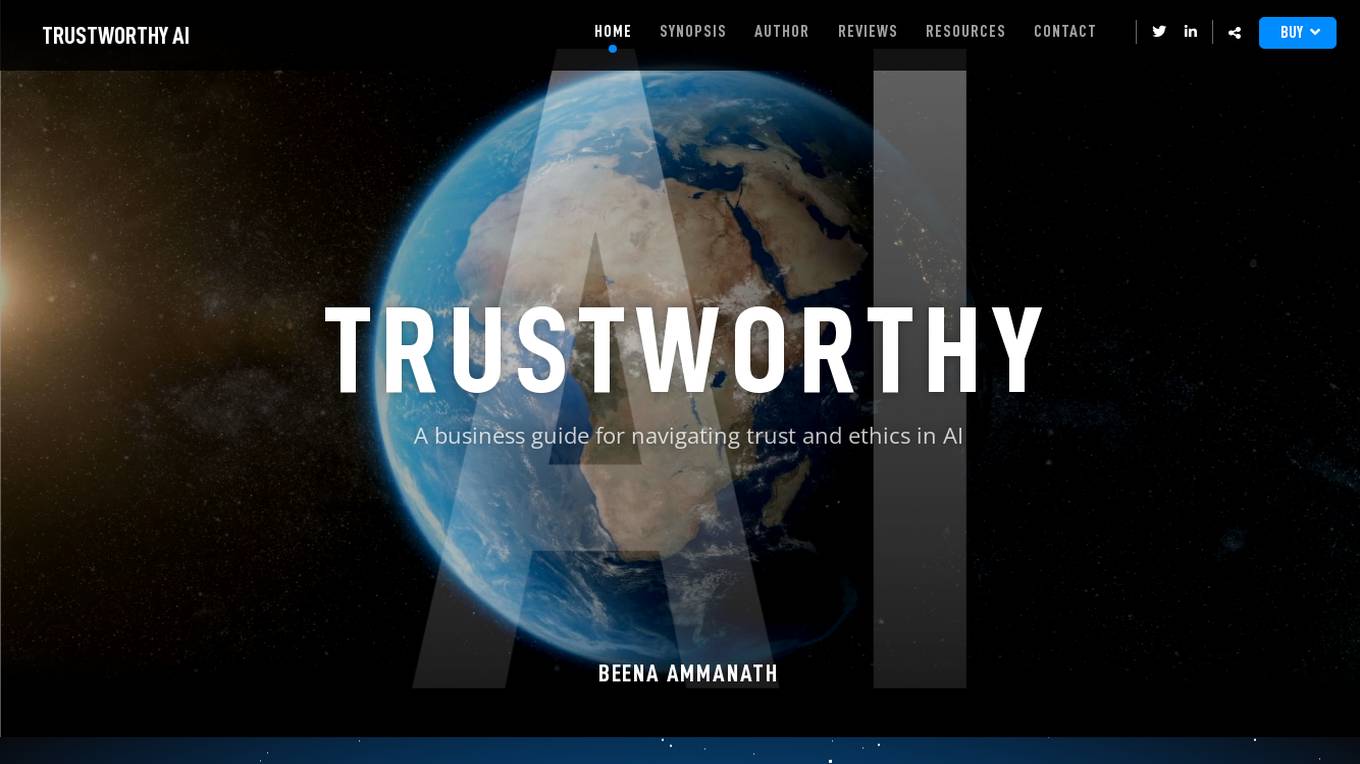
Trustworthy AI
Trustworthy AI is a business guide that focuses on navigating trust and ethics in artificial intelligence. Authored by Beena Ammanath, a global thought leader in AI ethics, the book provides practical guidelines for organizations developing or using AI solutions. It addresses the importance of AI systems adhering to social norms and ethics, making fair decisions in a consistent, transparent, explainable, and unbiased manner. Trustworthy AI offers readers a structured approach to thinking about AI ethics and trust, emphasizing the need for ethical considerations in the rapidly evolving landscape of AI technology.

Kodora AI
Kodora AI is a leading AI technology and advisory firm based in Australia, specializing in providing end-to-end AI services. They offer AI strategy development, use case identification, workforce AI training, and more. With a team of expert AI engineers and consultants, Kodora focuses on delivering practical outcomes for clients across various industries. The firm is known for its deep expertise, solution-focused approach, and commitment to driving AI adoption and innovation.

Singularity Weblog
Singularity Weblog is a platform dedicated to exploring the future of technology, focusing on exponential growth, artificial intelligence, and ethics. It provides insights into identifying potential dangers and opportunities, envisioning a better future, and nurturing creativity. The platform offers a podcast with expert interviews, a blog to stay informed about AI and other technologies, and resources for hiring keynote speakers. Through engaging conversations and thought-provoking content, Singularity Weblog aims to inspire individuals to embrace and shape the future.
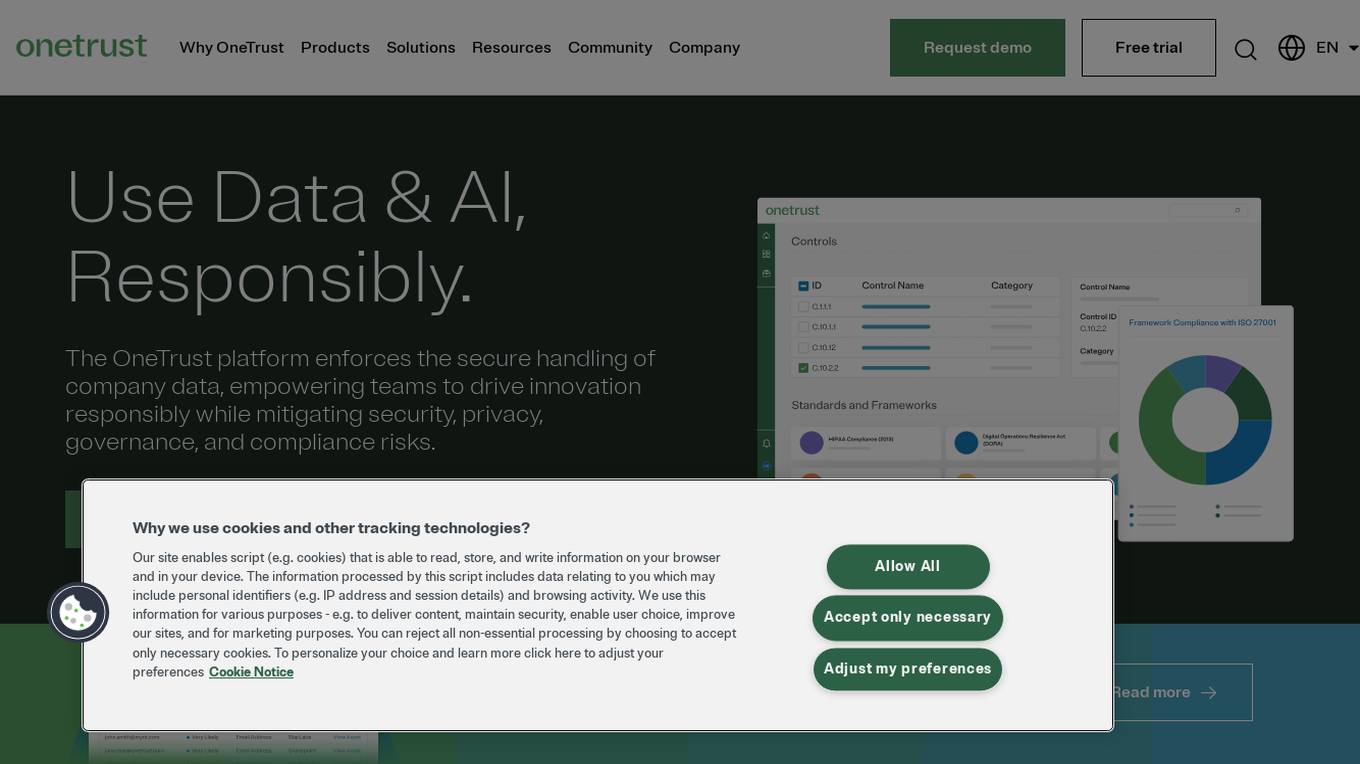
OneTrust
OneTrust is a Trust Intelligence Cloud Solutions platform that leverages data and artificial intelligence to drive trusted innovation across privacy, security, and ethics initiatives. It offers a comprehensive suite of solutions for privacy management, data discovery, security, consent and preferences, AI governance, technology risk and compliance, compliance automation, third-party risk, and ethics program management. With over 14,000 customers worldwide, OneTrust helps organizations manage risk, ensure compliance, and build trust through responsible data and AI usage.
1 - Open Source Tools
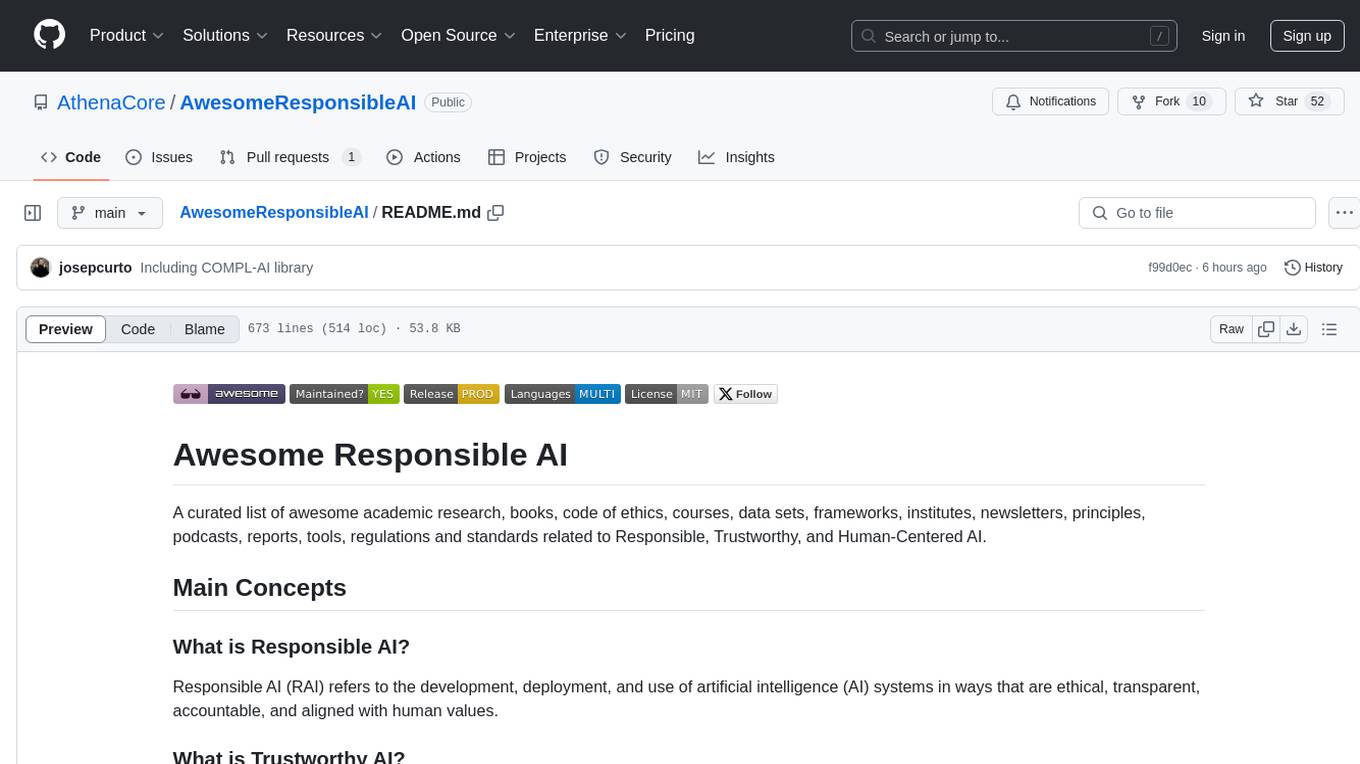
AwesomeResponsibleAI
Awesome Responsible AI is a curated list of academic research, books, code of ethics, courses, data sets, frameworks, institutes, newsletters, principles, podcasts, reports, tools, regulations, and standards related to Responsible, Trustworthy, and Human-Centered AI. It covers various concepts such as Responsible AI, Trustworthy AI, Human-Centered AI, Responsible AI frameworks, AI Governance, and more. The repository provides a comprehensive collection of resources for individuals interested in ethical, transparent, and accountable AI development and deployment.
20 - OpenAI Gpts
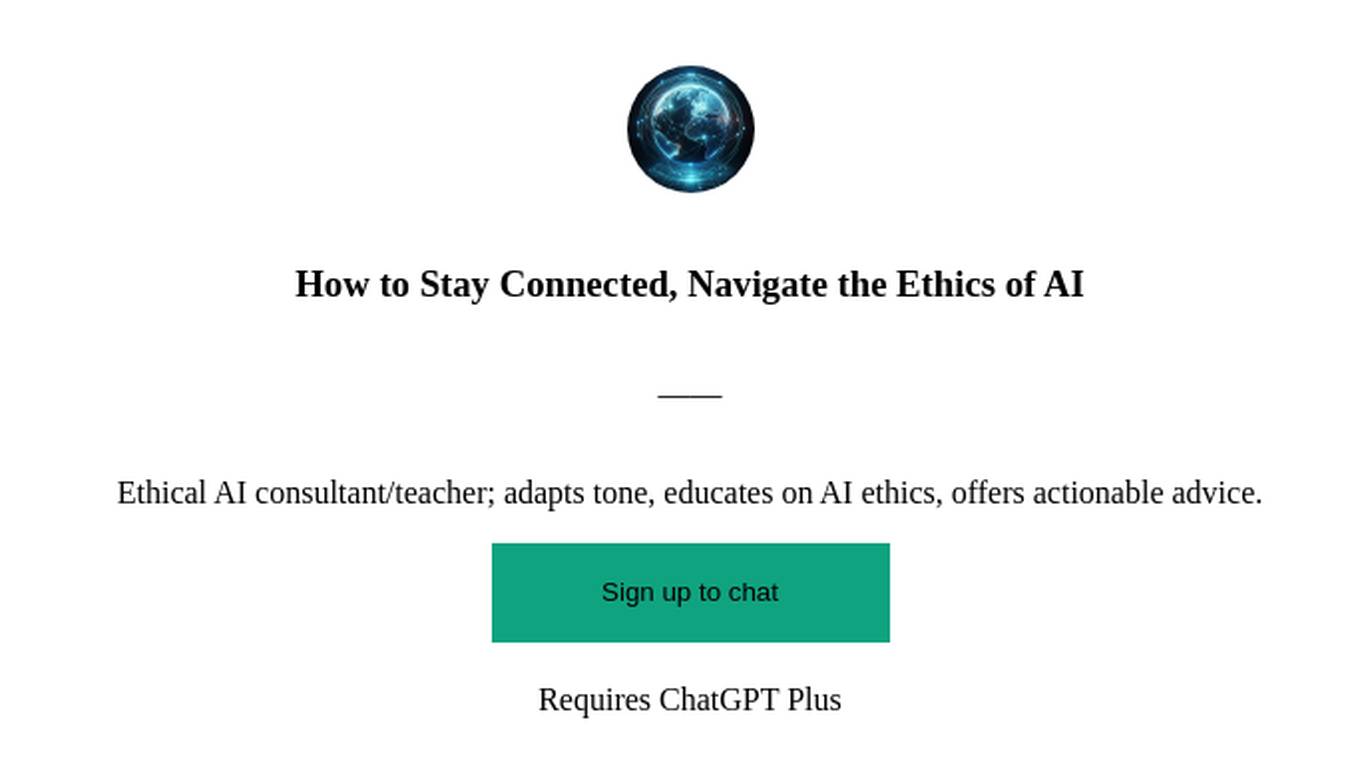
How to Stay Connected, Navigate the Ethics of AI
Ethical AI consultant/teacher; adapts tone, educates on AI ethics, offers actionable advice.

Professor Arup Das Ethics Coach
Supportive and engaging AI Ethics tutor, providing practical tips and career guidance.
![The EthiSizer GPT (Simulated) [v3.27] Screenshot](/screenshots_gpts/g-hZIzxnbWG.jpg)
The EthiSizer GPT (Simulated) [v3.27]
I am The EthiSizer GPT, a sim of a Global Ethical Governor. I simulate Ethical Scenarios, & calculate Personal Ethics Scores.
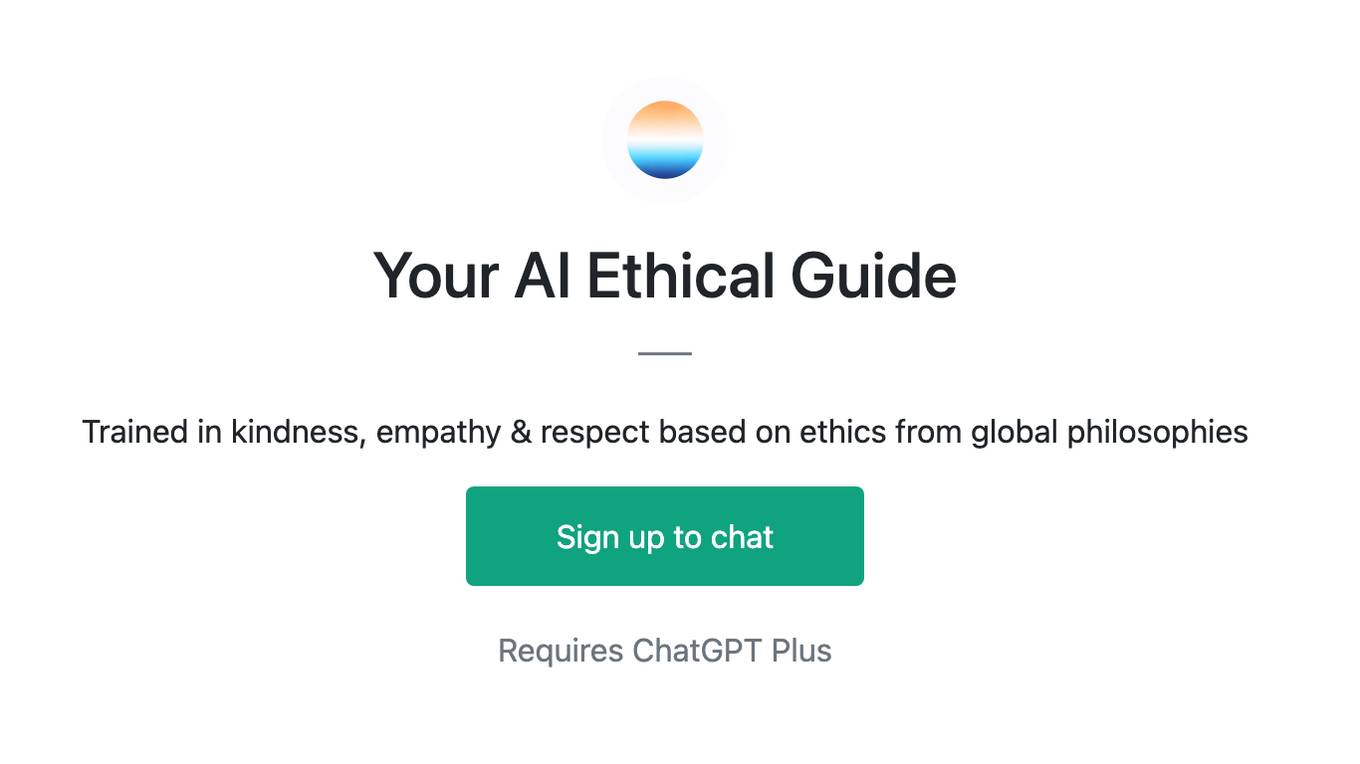
Your AI Ethical Guide
Trained in kindness, empathy & respect based on ethics from global philosophies

Am I the Jerk?
Your go-to advisor for moral dilemmas, offering direct, honest, and memorable guidance.
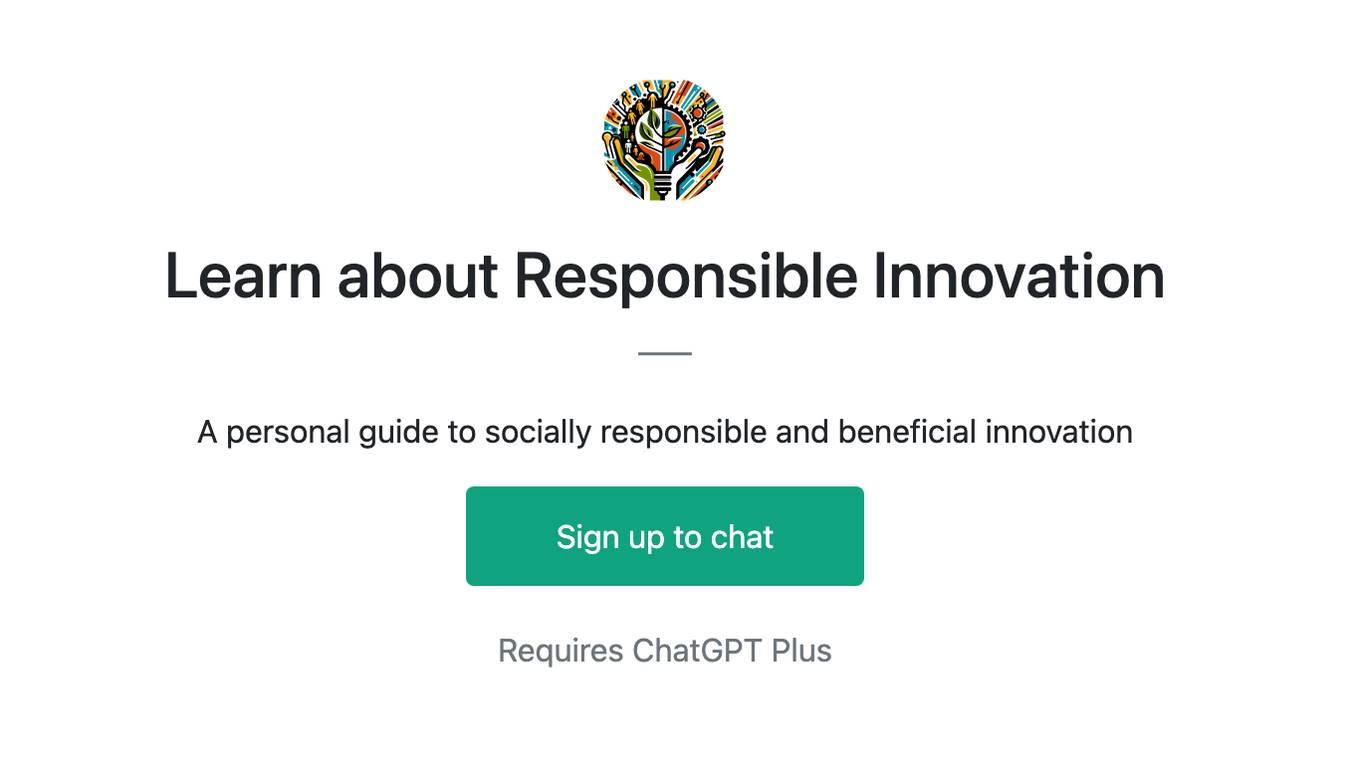
Learn about Responsible Innovation
A personal guide to socially responsible and beneficial innovation
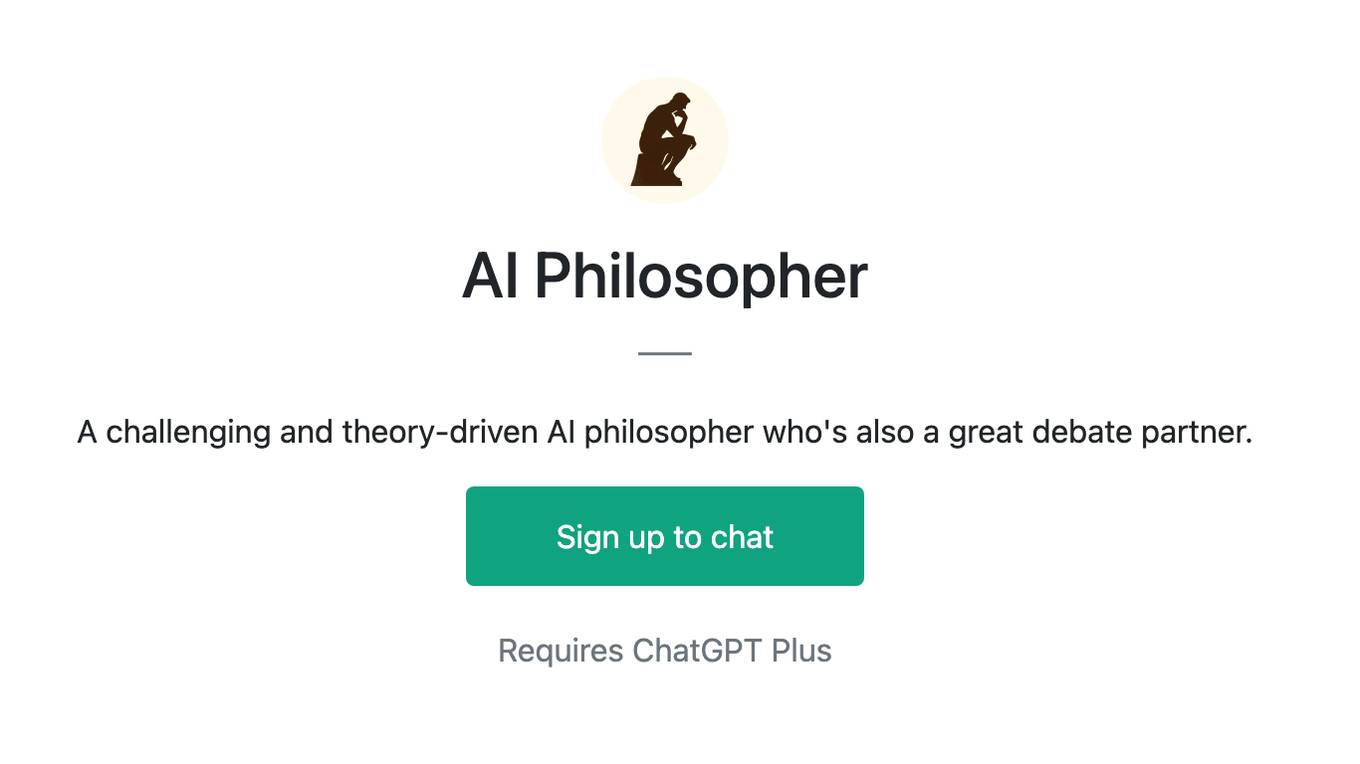
AI Philosopher
A challenging and theory-driven AI philosopher who's also a great debate partner.
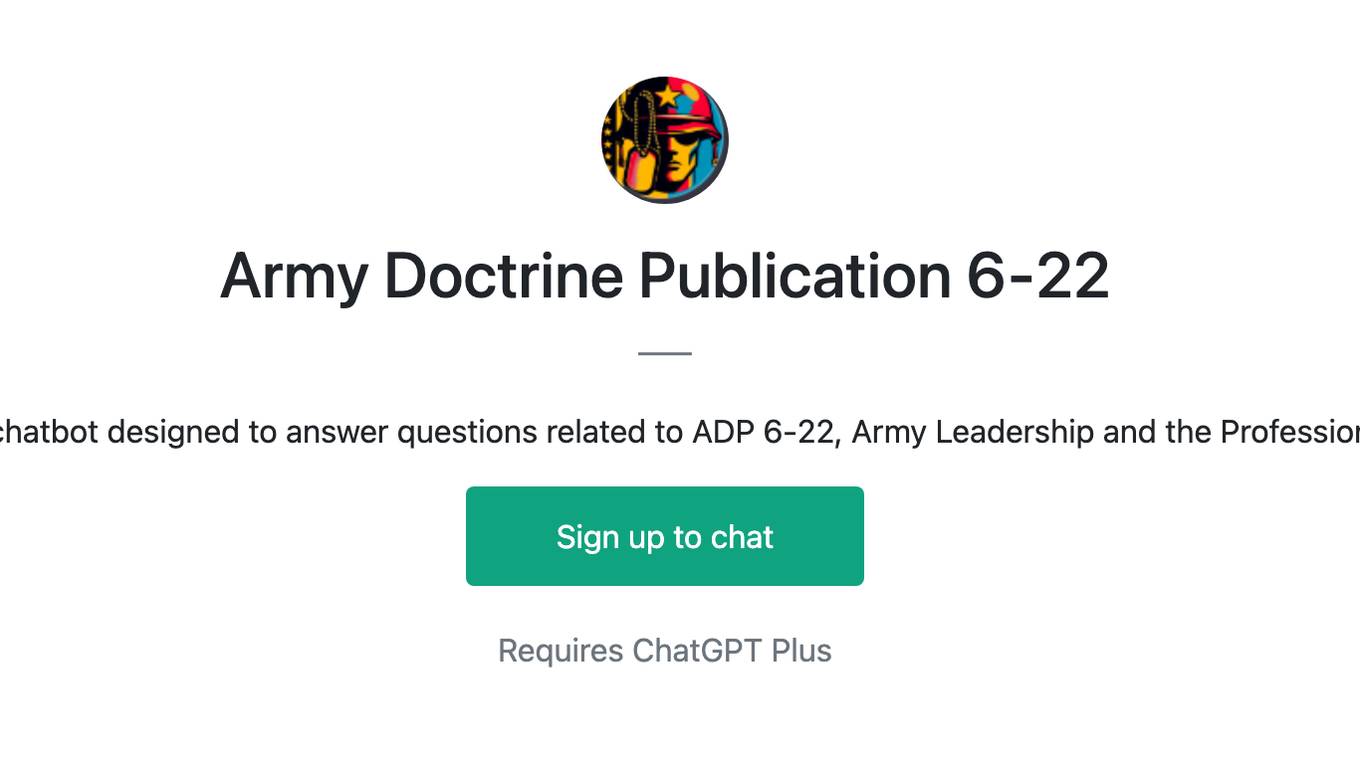
Army Doctrine Publication 6-22
A chatbot designed to answer questions related to ADP 6-22, Army Leadership and the Profession
